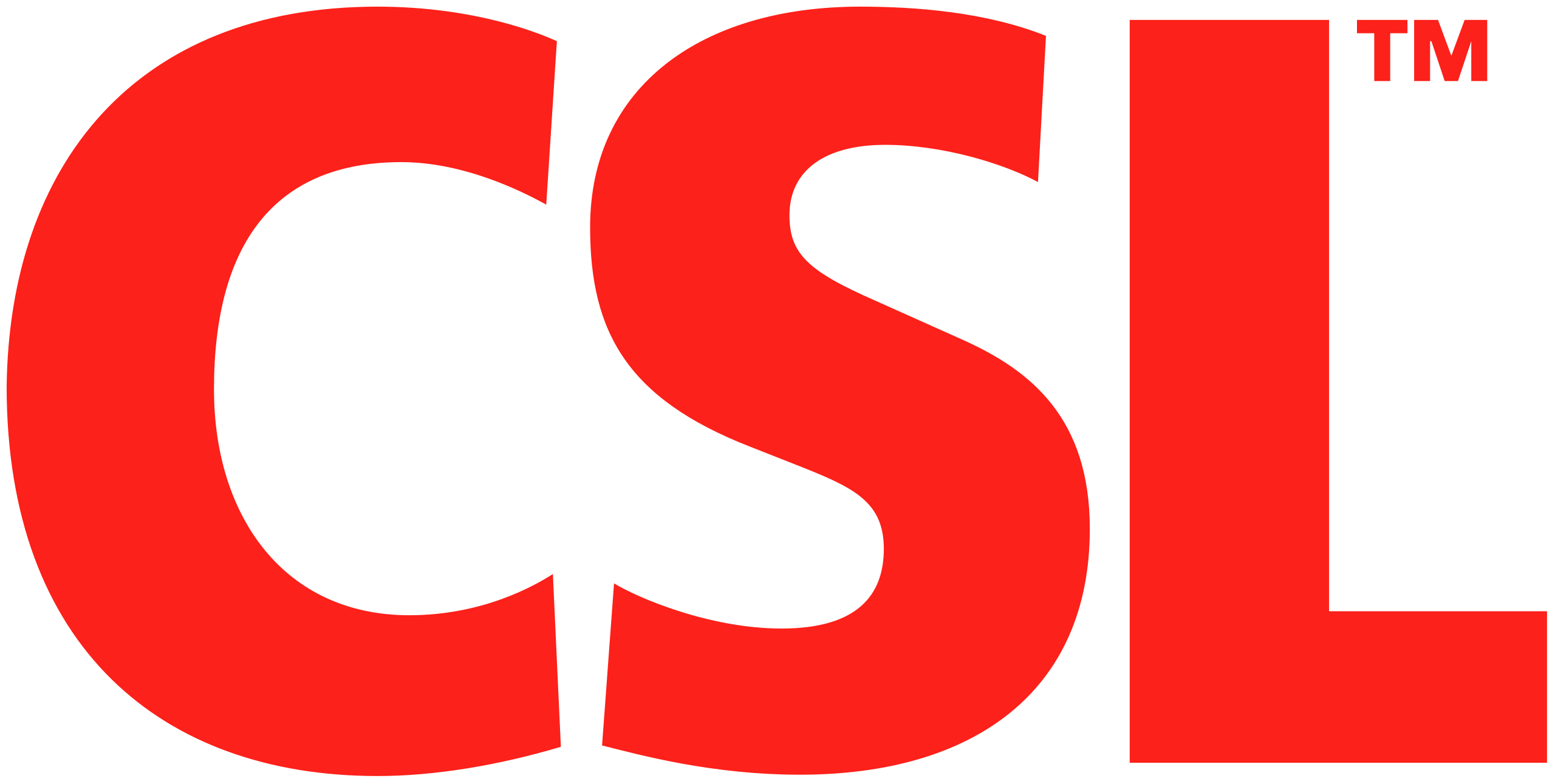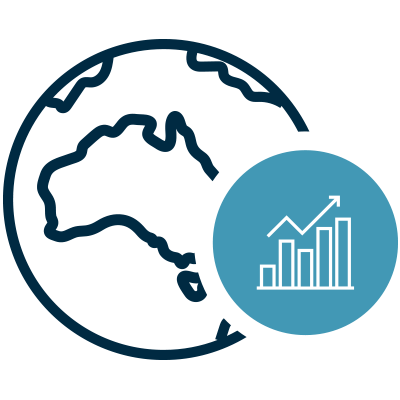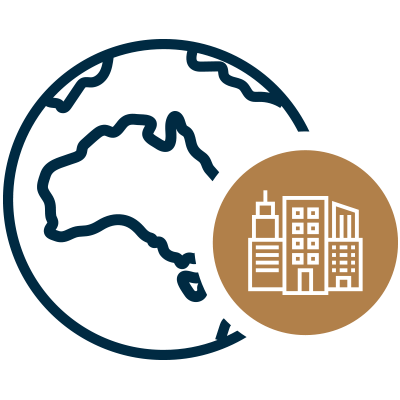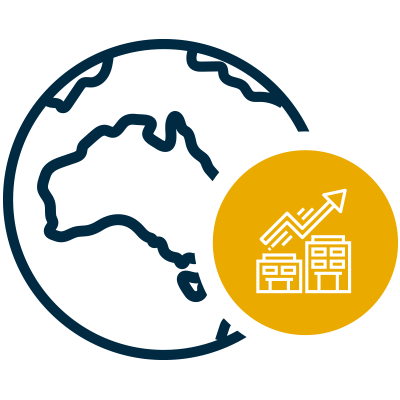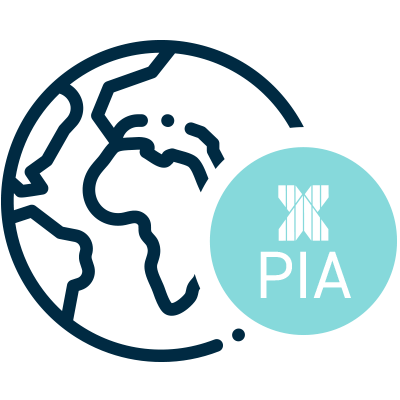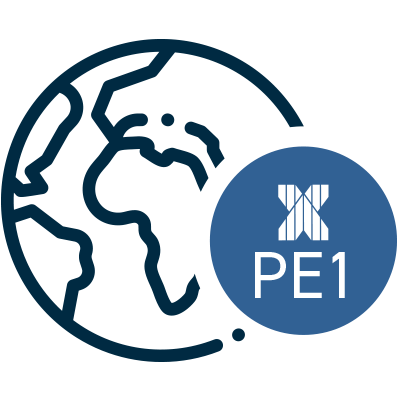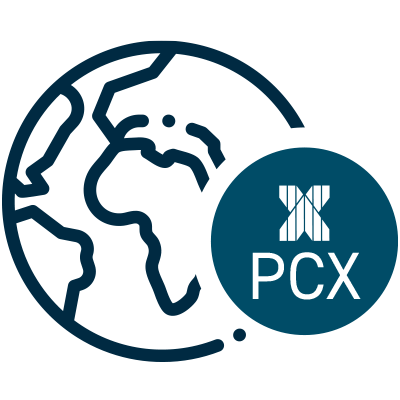https://data.pengana.com/wp-json/pen/performance?fund_code=PENSIF&date=29/09/2023&aggregation_code=Class%20A
Array
(
[0] => Array
(
[date] => 29/09/2023
[table] =>
[piechart] => Array
(
[0] => Array
(
[0] => Sector Breakdown
[1] => ["Consumer Discretionary", 0.034664952],["Consumer Staples", 0.017586446],["Health Care", 0.292494577],["Industrials", 0.275684239],["Information Technology", 0.27171279],["Materials", 0.097769919],["Cash", 0.010087077],
)
[1] => Array
(
[0] => Capitalisation Breakdown
[1] => ["2-10bn", 0.312531725],["10-20bn", 0.092999031],[">20bn", 0.584382167],["Cash", 0.010087077],
)
[2] => Array
(
[0] => Region Breakdown
[1] => ["North America", 0.676970681],["Europe ex-UK", 0.148536912],["Japan", 0.077242512],["UK", 0.063567789],["Asia Pacific", 0.023595028],["Cash", 0.010087077],
)
[3] => Array
(
[0] => Custom Sector Breakdown
[1] => ["Health", 0.255440955],["Resource Efficiency", 0.296739323],["Sustainable Transport", 0.092736161],["Environmental Services", 0.111566915],["Water Management", 0.065817556],["Safety", 0.066100305],["Cleaner Energy", 0.049935978],["Wellbeing", 0.034140544],["Education", 0.017435186],["Cash", 0.010087077],
)
)
[topholdings] => 2045623/ANSYS Inc/United States/Information Technology,AUIUSD/Autodesk Inc/United States/Information Technology,CSL/CSL Ltd/Australia/Health Care,DHRUSD/Danaher Corp/United States/Health Care,B94G471/ICON PLC/United States/Health Care,BNZHB81/Linde PLC/United States/Materials,BKM4S16/MSA Safety Inc/United States/Industrials,BFY8C75/STERIS PLC/United States/Health Care,THEUSD/Thermo Fisher Scientific Inc/United States/Health Care,BK9ZQ96/Trane Technologies PLC/United States/Industrials,
[topholdingsimg] => https://data.pengana.com/wp-content/uploads/Stock-Icons/Ansys_logo-scaled.jpg,https://data.pengana.com/wp-content/uploads/Autodesk-logo-e1644184012863.png,https://data.pengana.com/wp-content/uploads/2560px-CSL_Limited_logo.svg.png,https://data.pengana.com/wp-content/uploads/download-10.png,https://data.pengana.com/wp-content/uploads/Stock-Icons/OG_Facebook-e1607920788456.png,https://data.pengana.com/wp-content/uploads/Linde_plc_logo_combi_cyan_1_3_2_sRGB.png,https://data.pengana.com/wp-content/uploads/Stock-Icons/1200px-MSA_Safety_Logo.svg.png,https://data.pengana.com/wp-content/uploads/Stock-Icons/STERIS-Logo-scaled.gif,https://data.pengana.com/wp-content/uploads/Stock-Icons/TMO_original.png,https://data.pengana.com/wp-content/uploads/tt_logo_color_rgb.jpg,
[topholdingsintro] => Array
(
[0] => Ansys is a market leader in multiphysics engineering simulation software for product design and optimisation. The company follows a strategy of Pervasive Engineering Simulation to enable innovation. Its software accelerates product time to market, improves engineering and optimises product quality and safety for a variety of products including fuel efficient cars and planes, wind turbines as well as medical technology and consumer products.
[1] => Autodesk is a global leader in 3D design and engineering software and services. Its products are used by architects, engineers and designers to design, develop and manufacture and operate a vast range of products, buildings and services. Autodesk tools are a critical component in the design and operation of more resource efficient products and buildings. They can deliver significant resource savings, due to their impressive capabilities and critical position in design process. The product brands include Autodesk 360 cloud services, AutoCAD civil 3D and LT, 3Ds Max, Maya, and Revit.
[2] => CSL develops medical products for serious and life-threatening diseases. Its core business is as a provider of human blood plasma-derived products to treat bleeding disorders, rare and serious infections and autoimmune diseases. CSL also manufactures vaccines and related products, including for flu and cervical cancer, as well as other products that speed up recovery times for patients that have undergone heart surgery, organ transplants and burns. The company provides these solutions across North America, Europe, Asia, Australia as well as other parts of the world.
[3] => Danaher is a diversified business that designs, manufactures and sells laboratory equipment and consumables to clinical and medical laboratories including microscopes, analytical software and imaging and molecular devices. These tools are used in the development of new drugs and for diagnosing critically ill patients. In addition, the company also designs, manufactures and sells equipment to test and treat water (incl. UV water treatment systems). Overall, the products offer improved efficiency and reliability.
[4] => ICON is a clinical research organisation (CRO) which provides outsourced development services on a global basis to the pharmaceutical, biotechnology and medical device industries. The mission is to accelerate the development of drugs and devices that save lives and improve the quality of life. ICON specialises in the strategic development, management and analysis of programmes to support all stages of the of the clinical development process.
[5] => Linde Plc produces and distributes industrial gases. The company operates globally supplying oxygen, hydrogen and other gases to a very wide range of downstream markets including into manufacturing industries, petrochemical and electronics industries. The gases are used in a variety of applications including in making manufacturing processes more efficient and in reducing harmful emissions. The company is establishing a strong presence in the green hydrogen market and also sells oxygen and other gases into the healthcare sector.
[6] => Founded in Pittsburgh in 1914, MSA originally stood for Mine Safety Appliances. This was changed in 2014 to MSA Safety to reflect the broader range of products the company has developed. Today, MSA still manufactures products such as fixed gas and flame detection systems which are used across industry. They are also a leading manufacturer of self-contained breathing apparatus and fire helmets for firefighters as well as fall protection equipment for working at height.
[7] => Steris provides a variety of products and services to the healthcare industry including specifically to hospitals, medical device manufacturers, pharmaceutical and biotechnology businesses as well as for food safety and industrial markets. The main areas of activity are in providing hygiene, sterilisation and anti-microbial treatment services to these end markets in order to ensure a safe and hygienic operating environment.
[8] => Thermo Fisher Scientific is one of the largest suppliers of analytical instrument, equipment, consumables and software for healthcare and environmental research, analysis, discovery and diagnostics. The company offers a very wide range of products and services including the equipment needed to analyse samples as well as the variety of containers and other consumables needed to handle them.
[9] => Trane is a world leader in air conditioning systems and services. The company serves engineers, contractors and business owners across an array of markets including education, healthcare, government and manufacturing. It also provides climate-controlled transport solutions to the food and medical industries. It also has an offering in the heat pump space which brings a 300% efficiency gain compared with the system it would replace.
[10] =>
)
[pdfchart] => PD94bWwgdmVyc2lvbj0iMS4wIiBlbmNvZGluZz0iVVRGLTgiIHN0YW5kYWxvbmU9Im5vIj8+PHN2ZyB4bWxucz0iaHR0cDovL3d3dy53My5vcmcvMjAwMC9zdmciIGJvcmRlcj0iMCIgZGF0YS1hYy13cmFwcGVyLWlkPSIzMDkiIHdpZHRoPSIzMzAiIGhlaWdodD0iMTY1IiBjbGFzcz0iYW55Y2hhcnQtdWktc3VwcG9ydCIgYWMtaWQ9ImFjX3N0YWdlXzhrIiByb2xlPSJwcmVzZW50YXRpb24iIHN0eWxlPSJkaXNwbGF5OiBibG9jazsiPjxkZWZzPjxjbGlwUGF0aCBjbGlwLXJ1bGU9Im5vbnplcm8iIGlkPSJhY19jbGlwXzh6Ij48cGF0aCBkYXRhLWFjLXdyYXBwZXItaWQ9IjMyOCIgaWQ9ImFjX3JlY3RfOTAiIGZpbGw9Im5vbmUiIHN0cm9rZT0iYmxhY2siIGQ9Ik0gMCAwIEwgMTgzLjEyODkwNjI1IDAgMTgzLjEyODkwNjI1IDE2IDAgMTYgMCAwIFoiLz48L2NsaXBQYXRoPjxjbGlwUGF0aCBjbGlwLXJ1bGU9Im5vbnplcm8iIGlkPSJhY19jbGlwXzk5Ij48cGF0aCBkYXRhLWFjLXdyYXBwZXItaWQ9IjMzNiIgaWQ9ImFjX3JlY3RfOWEiIGZpbGw9Im5vbmUiIHN0cm9rZT0iYmxhY2siIGQ9Ik0gNDggMjYgTCAzMjYgMjYgMzI2IDEzOCA0OCAxMzggNDggMjYgWiIvPjwvY2xpcFBhdGg+PGNsaXBQYXRoIGNsaXAtcnVsZT0ibm9uemVybyIgaWQ9ImFjX2NsaXBfYWQiPjxwYXRoIGRhdGEtYWMtd3JhcHBlci1pZD0iMzc0IiBpZD0iYWNfcmVjdF9hZSIgZmlsbD0ibm9uZSIgc3Ryb2tlPSJibGFjayIgZD0iTSA0OSAyNiBMIDMyNSAyNiAzMjUgMTM2IDQ5IDEzNiA0OSAyNiBaIi8+PC9jbGlwUGF0aD48Y2xpcFBhdGggY2xpcC1ydWxlPSJub256ZXJvIiBpZD0iYWNfY2xpcF9haSI+PHBhdGggZGF0YS1hYy13cmFwcGVyLWlkPSIzNzciIGlkPSJhY19yZWN0X2FqIiBmaWxsPSJub25lIiBzdHJva2U9ImJsYWNrIiBkPSJNIDQ5IDI2IEwgMzI2IDI2IDMyNiAxMzcgNDkgMTM3IDQ5IDI2IFoiLz48L2NsaXBQYXRoPjxjbGlwUGF0aCBjbGlwLXJ1bGU9Im5vbnplcm8iIGlkPSJhY19jbGlwX2FwIj48cGF0aCBkYXRhLWFjLXdyYXBwZXItaWQ9IjM4MiIgaWQ9ImFjX3JlY3RfYXEiIGZpbGw9Im5vbmUiIHN0cm9rZT0iYmxhY2siIGQ9Ik0gNDkgMjYgTCAzMjYgMjYgMzI2IDEzNyA0OSAxMzcgNDkgMjYgWiIvPjwvY2xpcFBhdGg+PGNsaXBQYXRoIGNsaXAtcnVsZT0ibm9uemVybyIgaWQ9ImFjX2NsaXBfYXgiPjxwYXRoIGRhdGEtYWMtd3JhcHBlci1pZD0iMzg4IiBpZD0iYWNfcmVjdF9heSIgZmlsbD0ibm9uZSIgc3Ryb2tlPSJibGFjayIgZD0iTSA0OCAyNiBMIDMyNSAyNiAzMjUgMTM3IDQ4IDEzNyA0OCAyNiBaIi8+PC9jbGlwUGF0aD48L2RlZnM+PGcgZGF0YS1hYy13cmFwcGVyLWlkPSIzMTAiIGlkPSJhY19sYXllcl84bCI+PGcgZGF0YS1hYy13cmFwcGVyLWlkPSIzMTUiIHJvbGU9ImFydGljbGUiIGFyaWEtbGFiZWw9ImxpbmUgY2hhcnQgLCB3aXRoIDIgbGluZSBzZXJpZXMsIC4gWS1zY2FsZSBtaW5pbXVtIHZhbHVlIGlzIDAgLCBtYXhpbXVtIHZhbHVlIGlzIDQyMDAwMC4gWC1zY2FsZSB3aXRoIDIxNCBjYXRlZ29yaWVzOiAzMC8xMi8yMDA1LCAzMS8wMS8yMDA2LCAyOC8wMi8yMDA2LCAzMS8wMy8yMDA2LCAyOC8wNC8yMDA2LCAzMS8wNS8yMDA2LCAzMC8wNi8yMDA2LCAzMS8wNy8yMDA2LCAzMS8wOC8yMDA2LCAyOS8wOS8yMDA2LCAzMS8xMC8yMDA2LCAzMC8xMS8yMDA2LCAyOS8xMi8yMDA2LCAzMS8wMS8yMDA3LCAyOC8wMi8yMDA3LCAzMC8wMy8yMDA3LCAzMC8wNC8yMDA3LCAzMS8wNS8yMDA3LCAyOS8wNi8yMDA3LCAzMS8wNy8yMDA3LCAzMS8wOC8yMDA3LCAyOC8wOS8yMDA3LCAzMS8xMC8yMDA3LCAzMC8xMS8yMDA3LCAzMS8xMi8yMDA3LCAzMS8wMS8yMDA4LCAyOS8wMi8yMDA4LCAzMS8wMy8yMDA4LCAzMC8wNC8yMDA4LCAzMC8wNS8yMDA4LCAzMC8wNi8yMDA4LCAzMS8wNy8yMDA4LCAyOS8wOC8yMDA4LCAzMC8wOS8yMDA4LCAzMS8xMC8yMDA4LCAyOC8xMS8yMDA4LCAzMS8xMi8yMDA4LCAzMC8wMS8yMDA5LCAyNy8wMi8yMDA5LCAzMS8wMy8yMDA5LCAzMC8wNC8yMDA5LCAyOS8wNS8yMDA5LCAzMC8wNi8yMDA5LCAzMS8wNy8yMDA5LCAzMS8wOC8yMDA5LCAzMC8wOS8yMDA5LCAzMC8xMC8yMDA5LCAzMC8xMS8yMDA5LCAzMS8xMi8yMDA5LCAyOS8wMS8yMDEwLCAyNi8wMi8yMDEwLCAzMS8wMy8yMDEwLCAzMC8wNC8yMDEwLCAzMS8wNS8yMDEwLCAzMC8wNi8yMDEwLCAzMC8wNy8yMDEwLCAzMS8wOC8yMDEwLCAzMC8wOS8yMDEwLCAyOS8xMC8yMDEwLCAzMC8xMS8yMDEwLCAzMS8xMi8yMDEwLCAzMS8wMS8yMDExLCAyOC8wMi8yMDExLCAzMS8wMy8yMDExLCAyOS8wNC8yMDExLCAzMS8wNS8yMDExLCAzMC8wNi8yMDExLCAyOS8wNy8yMDExLCAzMS8wOC8yMDExLCAzMC8wOS8yMDExLCAzMS8xMC8yMDExLCAzMC8xMS8yMDExLCAzMC8xMi8yMDExLCAzMS8wMS8yMDEyLCAyOS8wMi8yMDEyLCAzMC8wMy8yMDEyLCAzMC8wNC8yMDEyLCAzMS8wNS8yMDEyLCAyOS8wNi8yMDEyLCAzMS8wNy8yMDEyLCAzMS8wOC8yMDEyLCAyOC8wOS8yMDEyLCAzMS8xMC8yMDEyLCAzMC8xMS8yMDEyLCAzMS8xMi8yMDEyLCAzMS8wMS8yMDEzLCAyOC8wMi8yMDEzLCAyOC8wMy8yMDEzLCAzMC8wNC8yMDEzLCAzMS8wNS8yMDEzLCAyOC8wNi8yMDEzLCAzMS8wNy8yMDEzLCAzMC8wOC8yMDEzLCAzMC8wOS8yMDEzLCAzMS8xMC8yMDEzLCAyOS8xMS8yMDEzLCAzMS8xMi8yMDEzLCAzMS8wMS8yMDE0LCAyOC8wMi8yMDE0LCAzMS8wMy8yMDE0LCAzMC8wNC8yMDE0LCAzMC8wNS8yMDE0LCAzMC8wNi8yMDE0LCAzMS8wNy8yMDE0LCAyOS8wOC8yMDE0LCAzMC8wOS8yMDE0LCAzMS8xMC8yMDE0LCAyOC8xMS8yMDE0LCAzMS8xMi8yMDE0LCAzMC8wMS8yMDE1LCAyNy8wMi8yMDE1LCAzMS8wMy8yMDE1LCAzMC8wNC8yMDE1LCAyOS8wNS8yMDE1LCAzMC8wNi8yMDE1LCAzMS8wNy8yMDE1LCAzMS8wOC8yMDE1LCAzMC8wOS8yMDE1LCAzMC8xMC8yMDE1LCAzMC8xMS8yMDE1LCAzMS8xMi8yMDE1LCAyOS8wMS8yMDE2LCAyOS8wMi8yMDE2LCAzMS8wMy8yMDE2LCAyOS8wNC8yMDE2LCAzMS8wNS8yMDE2LCAzMC8wNi8yMDE2LCAyOS8wNy8yMDE2LCAzMS8wOC8yMDE2LCAzMC8wOS8yMDE2LCAzMS8xMC8yMDE2LCAzMC8xMS8yMDE2LCAzMC8xMi8yMDE2LCAzMS8wMS8yMDE3LCAyOC8wMi8yMDE3LCAzMS8wMy8yMDE3LCAyOC8wNC8yMDE3LCAzMS8wNS8yMDE3LCAzMC8wNi8yMDE3LCAzMS8wNy8yMDE3LCAzMS8wOC8yMDE3LCAyOS8wOS8yMDE3LCAzMS8xMC8yMDE3LCAzMC8xMS8yMDE3LCAyOS8xMi8yMDE3LCAzMS8wMS8yMDE4LCAyOC8wMi8yMDE4LCAyOS8wMy8yMDE4LCAzMC8wNC8yMDE4LCAzMS8wNS8yMDE4LCAyOS8wNi8yMDE4LCAzMS8wNy8yMDE4LCAzMS8wOC8yMDE4LCAyOC8wOS8yMDE4LCAzMS8xMC8yMDE4LCAzMC8xMS8yMDE4LCAzMS8xMi8yMDE4LCAzMS8wMS8yMDE5LCAyOC8wMi8yMDE5LCAyOS8wMy8yMDE5LCAzMC8wNC8yMDE5LCAzMS8wNS8yMDE5LCAyOC8wNi8yMDE5LCAzMS8wNy8yMDE5LCAzMC8wOC8yMDE5LCAzMC8wOS8yMDE5LCAzMS8xMC8yMDE5LCAyOS8xMS8yMDE5LCAzMS8xMi8yMDE5LCAzMS8wMS8yMDIwLCAyOC8wMi8yMDIwLCAzMS8wMy8yMDIwLCAzMC8wNC8yMDIwLCAyOS8wNS8yMDIwLCAzMC8wNi8yMDIwLCAzMS8wNy8yMDIwLCAzMS8wOC8yMDIwLCAzMC8wOS8yMDIwLCAzMC8xMC8yMDIwLCAzMC8xMS8yMDIwLCAzMS8xMi8yMDIwLCAyOS8wMS8yMDIxLCAyNi8wMi8yMDIxLCAzMS8wMy8yMDIxLCAzMC8wNC8yMDIxLCAzMS8wNS8yMDIxLCAzMC8wNi8yMDIxLCAzMC8wNy8yMDIxLCAzMS8wOC8yMDIxLCAzMC8wOS8yMDIxLCAyOS8xMC8yMDIxLCAzMC8xMS8yMDIxLCAzMS8xMi8yMDIxLCAzMS8wMS8yMDIyLCAyOC8wMi8yMDIyLCAzMS8wMy8yMDIyLCAyOS8wNC8yMDIyLCAzMS8wNS8yMDIyLCAzMC8wNi8yMDIyLCAyOS8wNy8yMDIyLCAzMS8wOC8yMDIyLCAzMC8wOS8yMDIyLCAzMS8xMC8yMDIyLCAzMC8xMS8yMDIyLCAzMC8xMi8yMDIyLCAzMS8wMS8yMDIzLCAyOC8wMi8yMDIzLCAzMS8wMy8yMDIzLCAyOC8wNC8yMDIzLCAzMS8wNS8yMDIzLCAzMC8wNi8yMDIzLCAzMS8wNy8yMDIzLCAzMS8wOC8yMDIzLCAyOS8wOS8yMDIzLCAuICIgaWQ9ImFjX2NoYXJ0XzhtIj48ZyBkYXRhLWFjLXdyYXBwZXItaWQ9IjMxNiIgaWQ9ImFjX2xheWVyXzhvIj48cGF0aCBkYXRhLWFjLXdyYXBwZXItaWQ9IjMxNyIgaWQ9ImFjX3BhdGhfOG4iIGZpbGw9IiNFQUVBRUEiIHN0cm9rZT0ibm9uZSIgZD0iTSAwIDAgTCAzMzAgMCAzMzAgMCAzMzAgMTY1IDMzMCAxNjUgMCAxNjUgMCAxNjUgMCAwIDAgMCBaIi8+PC9nPjxwYXRoIGRhdGEtYWMtd3JhcHBlci1pZD0iMzg3IiBjbGlwLXBhdGg9InVybCgmcXVvdDsjYWNfY2xpcF9heCZxdW90OykiIGNsaXBQYXRoVW5pdHM9InVzZXJTcGFjZU9uVXNlIiBpZD0iYWNfcGF0aF9heiIgZmlsbD0ibm9uZSIgc3Ryb2tlPSJub25lIiBkPSJNIDAsMCIvPjxwYXRoIGRhdGEtYWMtd3JhcHBlci1pZD0iMzI5IiBpZD0iYWNfcGF0aF85MiIgZmlsbD0ibm9uZSIgc3Ryb2tlPSJub25lIiBkPSJNIDQ4IDEzNy41IEwgMzI1IDEzNy41IDMyNSAxMTguNSA0OCAxMTguNSBaIi8+PHBhdGggZGF0YS1hYy13cmFwcGVyLWlkPSIzMzAiIGlkPSJhY19wYXRoXzkzIiBmaWxsPSJub25lIiBzdHJva2U9Im5vbmUiIGQ9Ik0gNDggMTE4LjUgTCAzMjUgMTE4LjUgMzI1IDEwMC41IDQ4IDEwMC41IFoiLz48cGF0aCBkYXRhLWFjLXdyYXBwZXItaWQ9IjMzMSIgaWQ9ImFjX3BhdGhfOTQiIGZpbGw9Im5vbmUiIHN0cm9rZT0ibm9uZSIgZD0iTSA0OCAxMDAuNSBMIDMyNSAxMDAuNSAzMjUgODEuNSA0OCA4MS41IFoiLz48cGF0aCBkYXRhLWFjLXdyYXBwZXItaWQ9IjMzMiIgaWQ9ImFjX3BhdGhfOTUiIGZpbGw9Im5vbmUiIHN0cm9rZT0ibm9uZSIgZD0iTSA0OCA4MS41IEwgMzI1IDgxLjUgMzI1IDYzLjUgNDggNjMuNSBaIi8+PHBhdGggZGF0YS1hYy13cmFwcGVyLWlkPSIzMzMiIGlkPSJhY19wYXRoXzk2IiBmaWxsPSJub25lIiBzdHJva2U9Im5vbmUiIGQ9Ik0gNDggNjMuNSBMIDMyNSA2My41IDMyNSA0NC41IDQ4IDQ0LjUgWiIvPjxwYXRoIGRhdGEtYWMtd3JhcHBlci1pZD0iMzM0IiBpZD0iYWNfcGF0aF85NyIgZmlsbD0ibm9uZSIgc3Ryb2tlPSJub25lIiBkPSJNIDQ4IDQ0LjUgTCAzMjUgNDQuNSAzMjUgMjYuNSA0OCAyNi41IFoiLz48cGF0aCBkYXRhLWFjLXdyYXBwZXItaWQ9IjMzNSIgY2xpcC1wYXRoPSJ1cmwoJnF1b3Q7I2FjX2NsaXBfOTkmcXVvdDspIiBjbGlwUGF0aFVuaXRzPSJ1c2VyU3BhY2VPblVzZSIgaWQ9ImFjX3BhdGhfOWIiIGZpbGw9Im5vbmUiIHN0cm9rZT0iI0NFQ0VDRSIgZD0iTSA0OCAxMzcuNSBMIDMyNSAxMzcuNSBNIDQ4IDExOC41IEwgMzI1IDExOC41IE0gNDggMTAwLjUgTCAzMjUgMTAwLjUgTSA0OCA4MS41IEwgMzI1IDgxLjUgTSA0OCA2My41IEwgMzI1IDYzLjUgTSA0OCA0NC41IEwgMzI1IDQ0LjUgTSA0OCAyNi41IEwgMzI1IDI2LjUiLz48cGF0aCBkYXRhLWFjLXdyYXBwZXItaWQ9IjM3MyIgY2xpcC1wYXRoPSJ1cmwoJnF1b3Q7I2FjX2NsaXBfYWQmcXVvdDspIiBjbGlwUGF0aFVuaXRzPSJ1c2VyU3BhY2VPblVzZSIgaWQ9ImFjX3BhdGhfYWYiIGZpbGw9IiNjNWM1YzUiIHN0cm9rZT0ibm9uZSIgZD0iTSA0OCAxMzcgTCA0OCAyNiAyMjkgMjYgMjI5IDEzNyBaIi8+PGcgZGF0YS1hYy13cmFwcGVyLWlkPSIzODAiIGNsaXAtcGF0aD0idXJsKCZxdW90OyNhY19jbGlwX2FwJnF1b3Q7KSIgY2xpcFBhdGhVbml0cz0idXNlclNwYWNlT25Vc2UiIGlkPSJhY19sYXllcl9hciI+PHBhdGggZGF0YS1hYy13cmFwcGVyLWlkPSIzODEiIGlkPSJhY19wYXRoX2FuIiBmaWxsPSJub25lIiBzdHJva2U9IiMwMDc4NjQiIHN0cm9rZS13aWR0aD0iMSIgZD0iTSA0OCAxMTAuNTcxNDI4NTcxNDI4NTcgTCA0OS4zMDA0Njk0ODM1NjgwNyAxMDkuMzExMDUgNTAuNjAwOTM4OTY3MTM2MTUgMTA4LjAyNDI0Mjg1NzE0Mjg3IDUxLjkwMTQwODQ1MDcwNDIyNCAxMDYuNDcyODg1NzE0Mjg1NzIgNTMuMjAxODc3OTM0MjcyMzA0IDEwNy4xMzMzMzU3MTQyODU3MiA1NC41MDIzNDc0MTc4NDAzNzYgMTA4LjY0Mzk5Mjg1NzE0Mjg2IDU1LjgwMjgxNjkwMTQwODQ1IDEwOC4yOTc3Nzg1NzE0Mjg1NyA1Ny4xMDMyODYzODQ5NzY1MyAxMDkuODM1OTIxNDI4NTcxNDIgNTguNDAzNzU1ODY4NTQ0NiAxMDguOTM5NDY0Mjg1NzE0MjggNTkuNzA0MjI1MzUyMTEyNjcgMTA3Ljc5ODgwNzE0Mjg1NzE0IDYxLjAwNDY5NDgzNTY4MDc1IDEwNy44MDI3NzE0Mjg1NzE0MyA2Mi4zMDUxNjQzMTkyNDg4MyAxMDcuNDA0MjI4NTcxNDI4NTggNjMuNjA1NjMzODAyODE2OTA0IDEwNi43NTc3ODU3MTQyODU3MiA2NC45MDYxMDMyODYzODQ5OCAxMDUuMzg4Nzg1NzE0Mjg1NzIgNjYuMjA2NTcyNzY5OTUzMDYgMTA1Ljg0MzYyMTQyODU3MTQyIDY3LjUwNzA0MjI1MzUyMTEyIDEwNi4xODEzNzg1NzE0Mjg1NyA2OC44MDc1MTE3MzcwODkyIDEwNS4yNjI3MjE0Mjg1NzE0NCA3MC4xMDc5ODEyMjA2NTcyOCAxMDQuMzMzMjI4NTcxNDI4NTggNzEuNDA4NDUwNzA0MjI1MzQgMTA0LjczNjI2NDI4NTcxNDI4IDcyLjcwODkyMDE4Nzc5MzQyIDEwNS4wNDA0NTcxNDI4NTcxNSA3NC4wMDkzODk2NzEzNjE1IDEwNC4wOTQwNTAwMDAwMDAwMSA3NS4zMDk4NTkxNTQ5Mjk1NyAxMDUuMTg5Nzc4NTcxNDI4NTggNzYuNjEwMzI4NjM4NDk3NjYgMTA1Ljc0ODc0Mjg1NzE0Mjg2IDc3LjkxMDc5ODEyMjA2NTczIDEwNS4yNzQ2MTQyODU3MTQyOSA3OS4yMTEyNjc2MDU2MzM4MSAxMDQuOTI0NDM1NzE0Mjg1NzIgODAuNTExNzM3MDg5MjAxODkgMTA4LjkzNjgyMTQyODU3MTQyIDgxLjgxMjIwNjU3Mjc2OTk1IDEwOS4zNjkxOTI4NTcxNDI4NiA4My4xMTI2NzYwNTYzMzgwMiAxMDkuMzA5OTkyODU3MTQyODYgODQuNDEzMTQ1NTM5OTA2MSAxMDkuMDc4NDc4NTcxNDI4NTggODUuNzEzNjE1MDIzNDc0MTggMTA5LjA1Nzg2NDI4NTcxNDI5IDg3LjAxNDA4NDUwNzA0MjI0IDExMC44NTY4NTcxNDI4NTcxNCA4OC4zMTQ1NTM5OTA2MTAzNCAxMTAuNTYzNzY0Mjg1NzE0MjkgODkuNjE1MDIzNDc0MTc4NCAxMDcuODgyMDU3MTQyODU3MTUgOTAuOTE1NDkyOTU3NzQ2NDcgMTA5LjY4NzY1NzE0Mjg1NzE1IDkyLjIxNTk2MjQ0MTMxNDU2IDExMi4wNjYyMjg1NzE0Mjg1NyA5My41MTY0MzE5MjQ4ODI2MiAxMTMuMDIwNTY0Mjg1NzE0MjkgOTQuODE2OTAxNDA4NDUwNyAxMTMuNjYzMzA3MTQyODU3MTUgOTYuMTE3MzcwODkyMDE4NzggMTExLjk3MDAyODU3MTQyODU3IDk3LjQxNzg0MDM3NTU4Njg1IDExNC4yMjk2NzE0Mjg1NzE0NCA5OC43MTgzMDk4NTkxNTQ5MyAxMTUuNzE4NjU3MTQyODU3MTQgMTAwLjAxODc3OTM0MjcyMzAxIDExNC4zNTQ5NDI4NTcxNDI4NiAxMDEuMzE5MjQ4ODI2MjkxMDcgMTE0LjgwODE5Mjg1NzE0Mjg2IDEwMi42MTk3MTgzMDk4NTkxNSAxMTQuMjA0ODI4NTcxNDI4NTggMTAzLjkyMDE4Nzc5MzQyNzIzIDExMy42MjE4MTQyODU3MTQyOCAxMDUuMjIwNjU3Mjc2OTk1MzEgMTEzLjA4MzQ2NDI4NTcxNDI5IDEwNi41MjExMjY3NjA1NjMzOCAxMTMuMzQwODc4NTcxNDI4NTggMTA3LjgyMTU5NjI0NDEzMTQ2IDExNC4xNzIwNTcxNDI4NTcxNCAxMDkuMTIyMDY1NzI3Njk5NTIgMTE0LjA1NzA5Mjg1NzE0Mjg2IDExMC40MjI1MzUyMTEyNjc2MSAxMTIuNjAwMDg1NzE0Mjg1NzEgMTExLjcyMzAwNDY5NDgzNTY4IDExMy40MDE0IDExMy4wMjM0NzQxNzg0MDM3NiAxMTMuMjI3MjM1NzE0Mjg1NzEgMTE0LjMyMzk0MzY2MTk3MTgyIDExMi4zNTM1MDcxNDI4NTcxNCAxMTUuNjI0NDEzMTQ1NTM5OSAxMTIuNDM1OTY0Mjg1NzE0MjggMTE2LjkyNDg4MjYyOTEwNzk4IDExMi4xMzY1Mjg1NzE0Mjg1NyAxMTguMjI1MzUyMTEyNjc2MDMgMTEyLjg2ODYgMTE5LjUyNTgyMTU5NjI0NDExIDExMy4zMTI2IDEyMC44MjYyOTEwNzk4MTIxOCAxMTQuNTA1NTg1NzE0Mjg1NzEgMTIyLjEyNjc2MDU2MzM4MDI2IDExNC4yMzczMzU3MTQyODU3IDEyMy40MjcyMzAwNDY5NDgzNCAxMTMuNTI0MDI4NTcxNDI4NTcgMTI0LjcyNzY5OTUzMDUxNjQyIDExMy4zNTM4Mjg1NzE0Mjg1OCAxMjYuMDI4MTY5MDE0MDg0NSAxMTMuMDQ5MzcxNDI4NTcxNDMgMTI3LjMyODYzODQ5NzY1MjU2IDExMi4yNTI1NSAxMjguNjI5MTA3OTgxMjIwNjQgMTEyLjQxMjcwNzE0Mjg1NzE0IDEyOS45Mjk1Nzc0NjQ3ODg3NCAxMTIuNjU0IDEzMS4yMzAwNDY5NDgzNTY4IDExMi44MjM2NzE0Mjg1NzE0MyAxMzIuNTMwNTE2NDMxOTI0ODcgMTEyLjc1ODY1NzE0Mjg1NzE1IDEzMy44MzA5ODU5MTU0OTI5MyAxMTMuMDkzMjQyODU3MTQyODUgMTM1LjEzMTQ1NTM5OTA2MSAxMTQuNDQxMSAxMzYuNDMxOTI0ODgyNjI5MSAxMTUuNzg1Nzg1NzE0Mjg1NzEgMTM3LjczMjM5NDM2NjE5NzE4IDExNS41MzEyNzg1NzE0Mjg1NyAxMzkuMDMyODYzODQ5NzY1MjUgMTE1LjEwMjg3MTQyODU3MTQzIDE0MC4zMzMzMzMzMzMzMzMzMSAxMTYuMTI5NjIxNDI4NTcxNDMgMTQxLjYzMzgwMjgxNjkwMTM4IDExNS43NTA2MzU3MTQyODU3MiAxNDIuOTM0MjcyMzAwNDY5NDcgMTE1Ljc1MDYzNTcxNDI4NTcyIDE0NC4yMzQ3NDE3ODQwMzc1NCAxMTUuNzUwNjM1NzE0Mjg1NzIgMTQ1LjUzNTIxMTI2NzYwNTYzIDExNS43NTA2MzU3MTQyODU3MiAxNDYuODM1NjgwNzUxMTczNyAxMTUuNzUwNjM1NzE0Mjg1NzIgMTQ4LjEzNjE1MDIzNDc0MTc2IDExNS45ODkwMjE0Mjg1NzE0MyAxNDkuNDM2NjE5NzE4MzA5ODMgMTE2LjU5MjEyMTQyODU3MTQzIDE1MC43MzcwODkyMDE4Nzc5IDExNi44OTg2OTI4NTcxNDI4NiAxNTIuMDM3NTU4Njg1NDQ2IDExNi4wMDg4NDI4NTcxNDI4NSAxNTMuMzM4MDI4MTY5MDE0MDggMTE1LjUzMTI3ODU3MTQyODU3IDE1NC42Mzg0OTc2NTI1ODIxNSAxMTUuOTEzMTcxNDI4NTcxNDMgMTU1LjkzODk2NzEzNjE1MDIgMTE1LjQxMDc2NDI4NTcxNDI4IDE1Ny4yMzk0MzY2MTk3MTgyOCAxMTQuNzU3NzE0Mjg1NzE0MjkgMTU4LjUzOTkwNjEwMzI4NjM3IDExMy42MTc4NSAxNTkuODQwMzc1NTg2ODU0NDYgMTEzLjA4OTU0Mjg1NzE0Mjg2IDE2MS4xNDA4NDUwNzA0MjI1MyAxMTMuMjE3NDU3MTQyODU3MTQgMTYyLjQ0MTMxNDU1Mzk5MDYgMTEyLjc1NjAxNDI4NTcxNDI5IDE2My43NDE3ODQwMzc1NTg2NiAxMTAuNjY4MTU3MTQyODU3MTQgMTY1LjA0MjI1MzUyMTEyNjcyIDExMC4zMjY3IDE2Ni4zNDI3MjMwMDQ2OTQ4MiAxMDguNTM3NDg1NzE0Mjg1NzEgMTY3LjY0MzE5MjQ4ODI2Mjg4IDEwOC4zNzYyNzE0Mjg1NzE0MyAxNjguOTQzNjYxOTcxODMwOTggMTA4LjI1NzA3ODU3MTQyODU2IDE3MC4yNDQxMzE0NTUzOTkwNCAxMDcuOTE3NDcxNDI4NTcxNDMgMTcxLjU0NDYwMDkzODk2NzEgMTA1LjkzOTAyODU3MTQyODU3IDE3Mi44NDUwNzA0MjI1MzUyMyAxMDQuNTU2MDIxNDI4NTcxNDMgMTc0LjE0NTUzOTkwNjEwMzMgMTA0LjMzMTExNDI4NTcxNDI4IDE3NS40NDYwMDkzODk2NzEzNiAxMDMuNjU4MjQyODU3MTQyODUgMTc2Ljc0NjQ3ODg3MzIzOTQzIDEwNS4wMTU2MTQyODU3MTQyOSAxNzguMDQ2OTQ4MzU2ODA3NTIgMTA1LjYyMTA5Mjg1NzE0Mjg2IDE3OS4zNDc0MTc4NDAzNzU1OCAxMDUuMTUzODM1NzE0Mjg1NzIgMTgwLjY0Nzg4NzMyMzk0MzY1IDEwNC43NDU3Nzg1NzE0Mjg1NyAxODEuOTQ4MzU2ODA3NTExNzQgMTA1LjExODY4NTcxNDI4NTcyIDE4My4yNDg4MjYyOTEwNzk4IDEwNC4zOTA1Nzg1NzE0Mjg1NiAxODQuNTQ5Mjk1Nzc0NjQ3OSAxMDMuMjE0NTA3MTQyODU3MTQgMTg1Ljg0OTc2NTI1ODIxNTk3IDEwMy4wMDU0NTcxNDI4NTcxNSAxODcuMTUwMjM0NzQxNzg0MDYgMTAxLjQ5NjY0OTk5OTk5OTk5IDE4OC40NTA3MDQyMjUzNTIxIDEwMC40MjI4NTcxNDI4NTcxNCAxODkuNzUxMTczNzA4OTIwMTYgOTkuNjc1OTg1NzE0Mjg1NzIgMTkxLjA1MTY0MzE5MjQ4ODI2IDk3LjUwNDYxNDI4NTcxNDMgMTkyLjM1MjExMjY3NjA1NjMyIDk2LjEzNTM1IDE5My42NTI1ODIxNTk2MjQ0MiA5Ni42MTA1MzU3MTQyODU3MiAxOTQuOTUzMDUxNjQzMTkyNDggOTQuNTQ0MDg1NzE0Mjg1NzEgMTk2LjI1MzUyMTEyNjc2MDU1IDk1Ljg1NzU4NTcxNDI4NTcgMTk3LjU1Mzk5MDYxMDMyODY0IDk0LjAyNjYxNDI4NTcxNDI5IDE5OC44NTQ0NjAwOTM4OTY3IDk1LjM3NzkwNzE0Mjg1NzE0IDIwMC4xNTQ5Mjk1Nzc0NjQ4IDk3LjU0OTAxNDI4NTcxNDI5IDIwMS40NTUzOTkwNjEwMzI4NiA5NC42MTg4Nzg1NzE0Mjg1OCAyMDIuNzU1ODY4NTQ0NjAwOTYgOTQuNzQwNDUwMDAwMDAwMDEgMjA0LjA1NjMzODAyODE2OTAyIDk1LjQ5MTU0OTk5OTk5OTk5IDIwNS4zNTY4MDc1MTE3MzcxMiA5OS4wNTcwMjg1NzE0Mjg1NyAyMDYuNjU3Mjc2OTk1MzA1MTggOTcuNTQ3OTU3MTQyODU3MTQgMjA3Ljk1Nzc0NjQ3ODg3MzI4IDk4LjIwMTAwNzE0Mjg1NzE1IDIwOS4yNTgyMTU5NjI0NDEzIDk3LjMxNTEyMTQyODU3MTQzIDIxMC41NTg2ODU0NDYwMDk0IDk1LjI4MTk3MTQyODU3MTQyIDIxMS44NTkxNTQ5Mjk1Nzc0NyA5Ny42MTQwMjg1NzE0Mjg1OCAyMTMuMTU5NjI0NDEzMTQ1NTYgOTUuMzU5MTQyODU3MTQyODYgMjE0LjQ2MDA5Mzg5NjcxMzYzIDk1LjIxNzIyMTQyODU3MTQzIDIxNS43NjA1NjMzODAyODE3IDk2LjM3NzQzNTcxNDI4NTcxIDIxNy4wNjEwMzI4NjM4NDk4IDk3Ljc3MDIyMTQyODU3MTQzIDIxOC4zNjE1MDIzNDc0MTc4MyA5Ni41MDc0NjQyODU3MTQyOSAyMTkuNjYxOTcxODMwOTg1OSA5NS4zNzI2MjE0Mjg1NzE0MiAyMjAuOTYyNDQxMzE0NTUzOTggOTUuOTc1NzIxNDI4NTcxNDMgMjIyLjI2MjkxMDc5ODEyMjA1IDk1LjI4Nzc4NTcxNDI4NTcyIDIyMy41NjMzODAyODE2OTAxNCA5NC40MDI0Mjg1NzE0Mjg1NyAyMjQuODYzODQ5NzY1MjU4MiA5Mi4xOTA2MjE0Mjg1NzE0MyAyMjYuMTY0MzE5MjQ4ODI2MjcgOTAuNTE5Mjc4NTcxNDI4NTcgMjI3LjQ2NDc4ODczMjM5NDM3IDkxLjAzNTY5Mjg1NzE0Mjg2IDIyOC43NjUyNTgyMTU5NjI0MyA5Mi41NjgyODU3MTQyODU3MSAyMzAuMDY1NzI3Njk5NTMwNTMgOTEuNTE5ODY0Mjg1NzE0MjggMjMxLjM2NjE5NzE4MzA5ODYgODkuOTU3MTQyODU3MTQyODYgMjMyLjY2NjY2NjY2NjY2NjY2IDg3LjU2NTA5Mjg1NzE0Mjg2IDIzMy45NjcxMzYxNTAyMzQ3NSA4Ni43NTk4MTQyODU3MTQzIDIzNS4yNjc2MDU2MzM4MDI4MiA4OC4zMzIzMTQyODU3MTQyOSAyMzYuNTY4MDc1MTE3MzcwOSA4Ni45NjQ5IDIzNy44Njg1NDQ2MDA5Mzg5OCA4Ni41Nzg3Nzg1NzE0Mjg1NyAyMzkuMTY5MDE0MDg0NTA3MDQgODUuOTIxMjM1NzE0Mjg1NzEgMjQwLjQ2OTQ4MzU2ODA3NTEzIDg1LjQ1NDI0Mjg1NzE0Mjg0IDI0MS43Njk5NTMwNTE2NDMyIDg0LjQ1MzY1NzE0Mjg1NzE0IDI0My4wNzA0MjI1MzUyMTEyNiA4NC4yNDg4MzU3MTQyODU3MiAyNDQuMzcwODkyMDE4Nzc5MzYgODIuOTI0MjM1NzE0Mjg1NzEgMjQ1LjY3MTM2MTUwMjM0NzQyIDgwLjYzMjM1IDI0Ni45NzE4MzA5ODU5MTU1MiA4Mi4wMjg1NzE0Mjg1NzE0MiAyNDguMjcyMzAwNDY5NDgzNTUgODYuMTExNzg1NzE0Mjg1NzIgMjQ5LjU3Mjc2OTk1MzA1MTYyIDg1LjQ2ODc3ODU3MTQyODU3IDI1MC44NzMyMzk0MzY2MTk3IDg4LjY5OTE0Mjg1NzE0Mjg1IDI1Mi4xNzM3MDg5MjAxODc3OCA4Ni44MTcxNjQyODU3MTQyOCAyNTMuNDc0MTc4NDAzNzU1ODcgODMuMjU3NzY0Mjg1NzE0MjkgMjU0Ljc3NDY0Nzg4NzMyMzk0IDgzLjQxOTc3MTQyODU3MTQ0IDI1Ni4wNzUxMTczNzA4OTIwMyA3OS44OTg2OTI4NTcxNDI4NiAyNTcuMzc1NTg2ODU0NDYwMSA4My43NTgwNTcxNDI4NTcxNSAyNTguNjc2MDU2MzM4MDI4MTYgNzkuOTIyNDc4NTcxNDI4NTcgMjU5Ljk3NjUyNTgyMTU5NjMgNzkuOTU1Nzc4NTcxNDI4NTcgMjYxLjI3Njk5NTMwNTE2NDMgODEuMDY2MDQyODU3MTQyODYgMjYyLjU3NzQ2NDc4ODczMjQgODAuMjE3OTUgMjYzLjg3NzkzNDI3MjMwMDUgNzkuODY1MTI4NTcxNDI4NTcgMjY1LjE3ODQwMzc1NTg2ODU0IDc2LjAzNDMwNzE0Mjg1NzEzIDI2Ni40Nzg4NzMyMzk0MzY2IDc2LjcxMDg3ODU3MTQyODU3IDI2Ny43NzkzNDI3MjMwMDQ3IDc1LjQyOTA5Mjg1NzE0Mjg2IDI2OS4wNzk4MTIyMDY1NzI4IDc3LjkzNTU3ODU3MTQyODU4IDI3MC4zODAyODE2OTAxNDA4NiA4MS43NDczNzE0Mjg1NzE0MyAyNzEuNjgwNzUxMTczNzA4OSA3OS4xNjAwMTQyODU3MTQyOCAyNzIuOTgxMjIwNjU3Mjc3IDc1LjU3NjgyODU3MTQyODU4IDI3NC4yODE2OTAxNDA4NDUwNiA3Ni45NjgyOTI4NTcxNDI4NiAyNzUuNTgyMTU5NjI0NDEzMiA3NS42MDUzNzE0Mjg1NzE0MyAyNzYuODgyNjI5MTA3OTgxMjQgNzQuNzgxMDY0Mjg1NzE0MjggMjc4LjE4MzA5ODU5MTU0OTMgNzIuNDYwNjM1NzE0Mjg1NzEgMjc5LjQ4MzU2ODA3NTExNzMgNzIuNDE3ODIxNDI4NTcxNDMgMjgwLjc4NDAzNzU1ODY4NTQ0IDY4LjIzNDQ0Mjg1NzE0Mjg1IDI4Mi4wODQ1MDcwNDIyNTM1IDY4LjQ2MzA1IDI4My4zODQ5NzY1MjU4MjE1NyA2OC4zMzkxIDI4NC42ODU0NDYwMDkzODk3IDY5LjgzMDQ2NDI4NTcxNDI5IDI4NS45ODU5MTU0OTI5NTc4IDY2LjQ4NTY2NDI4NTcxNDI4IDI4Ny4yODYzODQ5NzY1MjU4IDY0LjQ1MTE5Mjg1NzE0Mjg2IDI4OC41ODY4NTQ0NjAwOTM5NSA2NC4wMjcwMTQyODU3MTQyOSAyODkuODg3MzIzOTQzNjYxOTUgNjAuOTYzMTUgMjkxLjE4Nzc5MzQyNzIzMDEgNTYuOTk3ODA3MTQyODU3MTQgMjkyLjQ4ODI2MjkxMDc5ODEgNTMuOTU2NjcxNDI4NTcxNDI2IDI5My43ODg3MzIzOTQzNjYyIDU3Ljc2NDIzNTcxNDI4NTcyIDI5NS4wODkyMDE4Nzc5MzQzIDU2LjYwOTgzNTcxNDI4NTcxIDI5Ni4zODk2NzEzNjE1MDI0IDU1LjM4MzgxNDI4NTcxNDI5NCAyOTcuNjkwMTQwODQ1MDcwNDYgNTQuMTI0NDkyODU3MTQyODU1IDI5OC45OTA2MTAzMjg2Mzg1IDYyLjQxOTEgMzAwLjI5MTA3OTgxMjIwNjYgNjUuNjgwNjUgMzAxLjU5MTU0OTI5NTc3NDcgNjguMDQxNTE0Mjg1NzE0MjkgMzAyLjg5MjAxODc3OTM0MjcgNzEuNDg5NjUwMDAwMDAwMDEgMzA0LjE5MjQ4ODI2MjkxMDg0IDcxLjk5NzM0Mjg1NzE0Mjg1IDMwNS40OTI5NTc3NDY0Nzg4NSA3NS43OTUxMjg1NzE0Mjg1OCAzMDYuNzkzNDI3MjMwMDQ3IDY5LjI2MjI1MDAwMDAwMDAxIDMwOC4wOTM4OTY3MTM2MTUwNCA3My4yNDgyMDcxNDI4NTcxNCAzMDkuMzk0MzY2MTk3MTgzMTYgNzYuMDU4ODg1NzE0Mjg1NzEgMzEwLjY5NDgzNTY4MDc1MTE3IDcxLjg4MTA1NzE0Mjg1NzE0IDMxMS45OTUzMDUxNjQzMTkzIDY4LjAxOTg0Mjg1NzE0Mjg1IDMxMy4yOTU3NzQ2NDc4ODczIDcyLjExMTI1IDMxNC41OTYyNDQxMzE0NTU0IDY4LjYzMzc3ODU3MTQyODU4IDMxNS44OTY3MTM2MTUwMjM1IDY3LjY1MDM3MTQyODU3MTQzIDMxNy4xOTcxODMwOTg1OTE2IDY1LjU1OTA3ODU3MTQyODU3IDMxOC40OTc2NTI1ODIxNTk2IDY2LjY5MTI3ODU3MTQyODU3IDMxOS43OTgxMjIwNjU3Mjc3NCA2Ni4wNzcwNzg1NzE0Mjg1NyAzMjEuMDk4NTkxNTQ5Mjk1OCA2NC4xNDg4NSAzMjIuMzk5MDYxMDMyODYzODcgNjMuMTMxODc4NTcxNDI4NTcgMzIzLjY5OTUzMDUxNjQzMTkzIDYzLjM4NjEyMTQyODU3MTQzIDMyNSA2OS4xNDMzMjE0Mjg1NzE0MyIvPjwvZz48ZyBkYXRhLWFjLXdyYXBwZXItaWQ9IjM3NSIgY2xpcC1wYXRoPSJ1cmwoJnF1b3Q7I2FjX2NsaXBfYWkmcXVvdDspIiBjbGlwUGF0aFVuaXRzPSJ1c2VyU3BhY2VPblVzZSIgaWQ9ImFjX2xheWVyX2FrIj48cGF0aCBkYXRhLWFjLXdyYXBwZXItaWQ9IjM3NiIgaWQ9ImFjX3BhdGhfYWciIGZpbGw9Im5vbmUiIHN0cm9rZT0iIzVmNWY1ZiIgc3Ryb2tlLXdpZHRoPSIxIiBkPSJNIDQ4IDExMC41NzE0Mjg1NzE0Mjg1NyBMIDQ5LjMwMDQ2OTQ4MzU2ODA3IDExMC4yMjcwNjQyODU3MTQyOCA1MC42MDA5Mzg5NjcxMzYxNSAxMDkuNzc3NTE0Mjg1NzE0MjkgNTEuOTAxNDA4NDUwNzA0MjI0IDEwOC4wMTYzMTQyODU3MTQyOSA1My4yMDE4Nzc5MzQyNzIzMDQgMTA4LjkzNDk3MTQyODU3MTQzIDU0LjUwMjM0NzQxNzg0MDM3NiAxMDkuNzEwMTIxNDI4NTcxNDMgNTUuODAyODE2OTAxNDA4NDUgMTA5LjMyNTMyMTQyODU3MTQzIDU3LjEwMzI4NjM4NDk3NjUzIDExMC4wMDExMDAwMDAwMDAwMSA1OC40MDM3NTU4Njg1NDQ2IDEwOS4yMDQyNzg1NzE0Mjg1NyA1OS43MDQyMjUzNTIxMTI2NyAxMDguMjE2OTA3MTQyODU3MTQgNjEuMDA0Njk0ODM1NjgwNzUgMTA4LjIyNDgzNTcxNDI4NTcyIDYyLjMwNTE2NDMxOTI0ODgzIDEwOC4xMDI3MzU3MTQyODU3MSA2My42MDU2MzM4MDI4MTY5MDQgMTA3LjQ2ODQ1IDY0LjkwNjEwMzI4NjM4NDk4IDEwNi41OTUyNTAwMDAwMDAwMSA2Ni4yMDY1NzI3Njk5NTMwNiAxMDcuMjY1NzQyODU3MTQyODUgNjcuNTA3MDQyMjUzNTIxMTIgMTA3LjQ2NzM5Mjg1NzE0Mjg1IDY4LjgwNzUxMTczNzA4OTIgMTA3LjA3MjU1IDcwLjEwNzk4MTIyMDY1NzI4IDEwNi4wNTkyNzg1NzE0Mjg1NiA3MS40MDg0NTA3MDQyMjUzNCAxMDcuMDQ4NzY0Mjg1NzE0MjggNzIuNzA4OTIwMTg3NzkzNDIgMTA3Ljk5OTQwMDAwMDAwMDAxIDc0LjAwOTM4OTY3MTM2MTUgMTA2LjQ4MDgxNDI4NTcxNDI5IDc1LjMwOTg1OTE1NDkyOTU3IDEwNy42MDg3ODU3MTQyODU3MiA3Ni42MTAzMjg2Mzg0OTc2NiAxMDguMDczNjY0Mjg1NzE0MjkgNzcuOTEwNzk4MTIyMDY1NzMgMTA3LjkyNzUxNDI4NTcxNDI4IDc5LjIxMTI2NzYwNTYzMzgxIDEwOC4wOTUwNzE0Mjg1NzE0MyA4MC41MTE3MzcwODkyMDE4OSAxMTAuNzMzMTcxNDI4NTcxNDIgODEuODEyMjA2NTcyNzY5OTUgMTEyLjA4NTc4NTcxNDI4NTcyIDgzLjExMjY3NjA1NjMzODAyIDExMS43MTQ5OTI4NTcxNDI4NiA4NC40MTMxNDU1Mzk5MDYxIDExMS4yMTkxOTI4NTcxNDI4NiA4NS43MTM2MTUwMjM0NzQxOCAxMTEuMTMwOTIxNDI4NTcxNDMgODcuMDE0MDg0NTA3MDQyMjQgMTEzLjM0ODAxNDI4NTcxNDI5IDg4LjMxNDU1Mzk5MDYxMDM0IDExMy40NTcxNjQyODU3MTQyOCA4OS42MTUwMjM0NzQxNzg0IDExMS42NDkxODU3MTQyODU3MiA5MC45MTU0OTI5NTc3NDY0NyAxMTIuNjE0MzU3MTQyODU3MTQgOTIuMjE1OTYyNDQxMzE0NTYgMTEzLjM3MjMyODU3MTQyODU3IDkzLjUxNjQzMTkyNDg4MjYyIDExNC42MTE1NjQyODU3MTQyOCA5NC44MTY5MDE0MDg0NTA3IDExNS40MTc5IDk2LjExNzM3MDg5MjAxODc4IDExNS40MTAyMzU3MTQyODU3MiA5Ny40MTc4NDAzNzU1ODY4NSAxMTcuNzA5NTIxNDI4NTcxNDMgOTguNzE4MzA5ODU5MTU0OTMgMTE3LjkyNTQ0Mjg1NzE0Mjg1IDEwMC4wMTg3NzkzNDI3MjMwMSAxMTYuOTM3ODA3MTQyODU3MTQgMTAxLjMxOTI0ODgyNjI5MTA3IDExNi45MTc0NTcxNDI4NTcxNSAxMDIuNjE5NzE4MzA5ODU5MTUgMTE3LjIwNTc5Mjg1NzE0Mjg1IDEwMy45MjAxODc3OTM0MjcyMyAxMTYuMTIwNjM1NzE0Mjg1NzEgMTA1LjIyMDY1NzI3Njk5NTMxIDExNS41NjExNDI4NTcxNDI4NSAxMDYuNTIxMTI2NzYwNTYzMzggMTE1LjcwNDM4NTcxNDI4NTcyIDEwNy44MjE1OTYyNDQxMzE0NiAxMTYuNTcwNDUgMTA5LjEyMjA2NTcyNzY5OTUyIDExNi4wMDg1Nzg1NzE0Mjg1NyAxMTAuNDIyNTM1MjExMjY3NjEgMTE1LjI1MTQgMTExLjcyMzAwNDY5NDgzNTY4IDExNS45MDQxODU3MTQyODU3MiAxMTMuMDIzNDc0MTc4NDAzNzYgMTE1Ljc2NTcgMTE0LjMyMzk0MzY2MTk3MTgyIDExNC45OTk1MzU3MTQyODU3MSAxMTUuNjI0NDEzMTQ1NTM5OSAxMTUuMzAzNzI4NTcxNDI4NTYgMTE2LjkyNDg4MjYyOTEwNzk4IDExNS4yMjc4Nzg1NzE0Mjg1OCAxMTguMjI1MzUyMTEyNjc2MDMgMTE2LjEyMTE2NDI4NTcxNDI5IDExOS41MjU4MjE1OTYyNDQxMSAxMTUuOTM5NiAxMjAuODI2MjkxMDc5ODEyMTggMTE2LjM3OTYzNTcxNDI4NTcxIDEyMi4xMjY3NjA1NjMzODAyNiAxMTYuMjc3NjIxNDI4NTcxNDIgMTIzLjQyNzIzMDA0Njk0ODM0IDExNS43NjcwMjE0Mjg1NzE0MyAxMjQuNzI3Njk5NTMwNTE2NDIgMTE1Ljc2NzI4NTcxNDI4NTcyIDEyNi4wMjgxNjkwMTQwODQ1IDExNS42NzM3Mjg1NzE0Mjg1NyAxMjcuMzI4NjM4NDk3NjUyNTYgMTE0LjU3ODUyODU3MTQyODU2IDEyOC42MjkxMDc5ODEyMjA2NCAxMTQuMjc4ODI4NTcxNDI4NTggMTI5LjkyOTU3NzQ2NDc4ODc0IDExNC44NDc4MzU3MTQyODU3MSAxMzEuMjMwMDQ2OTQ4MzU2OCAxMTUuMTc3MTM1NzE0Mjg1NzEgMTMyLjUzMDUxNjQzMTkyNDg3IDExNS4wNTIxMjg1NzE0Mjg1NyAxMzMuODMwOTg1OTE1NDkyOTMgMTE1LjUwMTE1IDEzNS4xMzE0NTUzOTkwNjEgMTE2LjQyNjE1IDEzNi40MzE5MjQ4ODI2MjkxIDExNy4zODQ3MTQyODU3MTQyOCAxMzcuNzMyMzk0MzY2MTk3MTggMTE3LjI1MjU3MTQyODU3MTQzIDEzOS4wMzI4NjM4NDk3NjUyNSAxMTcuMDM4NzY0Mjg1NzE0MjggMTQwLjMzMzMzMzMzMzMzMzMxIDExNi44ODgzODU3MTQyODU3MiAxNDEuNjMzODAyODE2OTAxMzggMTE2Ljg1ODI1NzE0Mjg1NzE0IDE0Mi45MzQyNzIzMDA0Njk0NyAxMTYuODU4MjU3MTQyODU3MTQgMTQ0LjIzNDc0MTc4NDAzNzU0IDExNi44NTgyNTcxNDI4NTcxNCAxNDUuNTM1MjExMjY3NjA1NjMgMTE2Ljg1ODI1NzE0Mjg1NzE0IDE0Ni44MzU2ODA3NTExNzM3IDExNi44NTgyNTcxNDI4NTcxNCAxNDguMTM2MTUwMjM0NzQxNzYgMTE3LjI0ODA3ODU3MTQyODU4IDE0OS40MzY2MTk3MTgzMDk4MyAxMTcuMzU3NDkyODU3MTQyODYgMTUwLjczNzA4OTIwMTg3NzkgMTE3LjYyMDk4NTcxNDI4NTcxIDE1Mi4wMzc1NTg2ODU0NDYgMTE2Ljc2NjI4NTcxNDI4NTcxIDE1My4zMzgwMjgxNjkwMTQwOCAxMTYuMzM5NDY0Mjg1NzE0MjkgMTU0LjYzODQ5NzY1MjU4MjE1IDExNi40MjA2MDAwMDAwMDAwMSAxNTUuOTM4OTY3MTM2MTUwMiAxMTYuMjgyOTA3MTQyODU3MTQgMTU3LjIzOTQzNjYxOTcxODI4IDExNS43OTA4MDcxNDI4NTcxNSAxNTguNTM5OTA2MTAzMjg2MzcgMTE0LjgxNDAwNzE0Mjg1NzE1IDE1OS44NDAzNzU1ODY4NTQ0NiAxMTQuMzU4Mzc4NTcxNDI4NTcgMTYxLjE0MDg0NTA3MDQyMjUzIDExNC4yNDQyMDcxNDI4NTcxNCAxNjIuNDQxMzE0NTUzOTkwNiAxMTMuNDI3NTY0Mjg1NzE0MjggMTYzLjc0MTc4NDAzNzU1ODY2IDExMS40Njg0MTQyODU3MTQyOSAxNjUuMDQyMjUzNTIxMTI2NzIgMTEwLjkxNjU4NTcxNDI4NTcyIDE2Ni4zNDI3MjMwMDQ2OTQ4MiAxMDguOTk1NzU3MTQyODU3MTQgMTY3LjY0MzE5MjQ4ODI2Mjg4IDEwOS4zODI2NzE0Mjg1NzE0MyAxNjguOTQzNjYxOTcxODMwOTggMTA5LjM3ODQ0Mjg1NzE0Mjg2IDE3MC4yNDQxMzE0NTUzOTkwNCAxMDguNjU4IDE3MS41NDQ2MDA5Mzg5NjcxIDEwNy4xMDk1NSAxNzIuODQ1MDcwNDIyNTM1MjMgMTA1LjgyMTk1IDE3NC4xNDU1Mzk5MDYxMDMzIDEwNi4yMTQ0MTQyODU3MTQyOCAxNzUuNDQ2MDA5Mzg5NjcxMzYgMTA1LjQ4MDc1NzE0Mjg1NzE0IDE3Ni43NDY0Nzg4NzMyMzk0MyAxMDYuNTI0OTQ5OTk5OTk5OTkgMTc4LjA0Njk0ODM1NjgwNzUyIDEwNi4yMDI3ODU3MTQyODU3MSAxNzkuMzQ3NDE3ODQwMzc1NTggMTA1LjczNjg1IDE4MC42NDc4ODczMjM5NDM2NSAxMDUuNjIwODI4NTcxNDI4NTggMTgxLjk0ODM1NjgwNzUxMTc0IDEwNS42NTE3NSAxODMuMjQ4ODI2MjkxMDc5OCAxMDUuMTUyNzc4NTcxNDI4NTcgMTg0LjU0OTI5NTc3NDY0NzkgMTAzLjg4Mzk0Mjg1NzE0Mjg2IDE4NS44NDk3NjUyNTgyMTU5NyAxMDMuODE5NDU3MTQyODU3MTUgMTg3LjE1MDIzNDc0MTc4NDA2IDEwMi4xNDMwOTI4NTcxNDI4NiAxODguNDUwNzA0MjI1MzUyMSAxMDEuMjMyMzY0Mjg1NzE0MjggMTg5Ljc1MTE3MzcwODkyMDE2IDEwMC4wOTQzNDk5OTk5OTk5OSAxOTEuMDUxNjQzMTkyNDg4MjYgOTguMTMyMDI4NTcxNDI4NTggMTkyLjM1MjExMjY3NjA1NjMyIDk3Ljc5ODc2NDI4NTcxNDI4IDE5My42NTI1ODIxNTk2MjQ0MiA5OC4xNDA3NSAxOTQuOTUzMDUxNjQzMTkyNDggOTYuODIwMTE0Mjg1NzE0MjggMTk2LjI1MzUyMTEyNjc2MDU1IDk3LjkxNTMxNDI4NTcxNDI5IDE5Ny41NTM5OTA2MTAzMjg2NCA5NS4zNTgwODU3MTQyODU3MiAxOTguODU0NDYwMDkzODk2NyA5Ni43MjA0Nzg1NzE0Mjg1NyAyMDAuMTU0OTI5NTc3NDY0OCA5Ny44MzYwMjg1NzE0Mjg1NyAyMDEuNDU1Mzk5MDYxMDMyODYgOTUuMzk2MTQyODU3MTQyODUgMjAyLjc1NTg2ODU0NDYwMDk2IDk2LjI0MDAwNzE0Mjg1NzE0IDIwNC4wNTYzMzgwMjgxNjkwMiA5Ny4xMTg3NTcxNDI4NTcxMyAyMDUuMzU2ODA3NTExNzM3MTIgOTguNDMzODQyODU3MTQyODUgMjA2LjY1NzI3Njk5NTMwNTE4IDk5LjA5MDg1NzE0Mjg1NzE1IDIwNy45NTc3NDY0Nzg4NzMyOCA5OS40MTI0OTI4NTcxNDI4NyAyMDkuMjU4MjE1OTYyNDQxMyA5OC41MTI1OTk5OTk5OTk5OSAyMTAuNTU4Njg1NDQ2MDA5NCA5Ni4yMjg5MDcxNDI4NTcxNCAyMTEuODU5MTU0OTI5NTc3NDcgOTcuNzc2ODI4NTcxNDI4NTggMjEzLjE1OTYyNDQxMzE0NTU2IDk2Ljk1MDY3MTQyODU3MTQzIDIxNC40NjAwOTM4OTY3MTM2MyA5Ni40NjQxMjE0Mjg1NzE0MiAyMTUuNzYwNTYzMzgwMjgxNyA5Ni45Nzg0MjE0Mjg1NzE0NCAyMTcuMDYxMDMyODYzODQ5OCA5Ny41MzEwNDI4NTcxNDI4NiAyMTguMzYxNTAyMzQ3NDE3ODMgOTUuNzY1ODc4NTcxNDI4NTcgMjE5LjY2MTk3MTgzMDk4NTkgOTMuOTE5MzE0Mjg1NzE0MjggMjIwLjk2MjQ0MTMxNDU1Mzk4IDk0LjkxNjQ2NDI4NTcxNDI4IDIyMi4yNjI5MTA3OTgxMjIwNSA5NC4yOTQ2IDIyMy41NjMzODAyODE2OTAxNCA5My41MDA0MjE0Mjg1NzE0MyAyMjQuODYzODQ5NzY1MjU4MiA5MS45NzA3MzU3MTQyODU3MiAyMjYuMTY0MzE5MjQ4ODI2MjcgOTAuODA4MTQyODU3MTQyODUgMjI3LjQ2NDc4ODczMjM5NDM3IDkxLjk5NjYzNTcxNDI4NTcyIDIyOC43NjUyNTgyMTU5NjI0MyA5Mi43MjYzMjg1NzE0Mjg1OCAyMzAuMDY1NzI3Njk5NTMwNTMgOTIuMzczMjQyODU3MTQyODYgMjMxLjM2NjE5NzE4MzA5ODYgOTAuODc3Mzg1NzE0Mjg1NzEgMjMyLjY2NjY2NjY2NjY2NjY2IDg4LjkwODcyMTQyODU3MTQzIDIzMy45NjcxMzYxNTAyMzQ3NSA4Ny4zNzQ4MDcxNDI4NTcxNSAyMzUuMjY3NjA1NjMzODAyODIgODguMTgyNzI4NTcxNDI4NTggMjM2LjU2ODA3NTExNzM3MDkgODcuMzU2ODM1NzE0Mjg1NzIgMjM3Ljg2ODU0NDYwMDkzODk4IDg3LjU1MDgyMTQyODU3MTQyIDIzOS4xNjkwMTQwODQ1MDcwNCA4Ny44NTkyNDI4NTcxNDI4NSAyNDAuNDY5NDgzNTY4MDc1MTMgODYuNDkxMyAyNDEuNzY5OTUzMDUxNjQzMiA4Ni4yOTU3Mjg1NzE0Mjg1NyAyNDMuMDcwNDIyNTM1MjExMjYgODUuMDk5MDQyODU3MTQyODUgMjQ0LjM3MDg5MjAxODc3OTM2IDgzLjgwNTYyODU3MTQyODU3IDI0NS42NzEzNjE1MDIzNDc0MiA4MS42NDMyNDI4NTcxNDI4NyAyNDYuOTcxODMwOTg1OTE1NTIgODEuMzYxNzc4NTcxNDI4NTcgMjQ4LjI3MjMwMDQ2OTQ4MzU1IDg0LjM3MDY3MTQyODU3MTQzIDI0OS41NzI3Njk5NTMwNTE2MiA4NS4zNDAwNzE0Mjg1NzE0MyAyNTAuODczMjM5NDM2NjE5NyA4Ny40ODg0NSAyNTIuMTczNzA4OTIwMTg3NzggODUuNDc2NzA3MTQyODU3MTUgMjUzLjQ3NDE3ODQwMzc1NTg3IDgyLjYwNzA5Mjg1NzE0Mjg2IDI1NC43NzQ2NDc4ODczMjM5NCA4MS44MDczNjQyODU3MTQyOSAyNTYuMDc1MTE3MzcwODkyMDMgNzkuMzIyMjg1NzE0Mjg1NzEgMjU3LjM3NTU4Njg1NDQ2MDEgODEuNzg3NTQyODU3MTQyODUgMjU4LjY3NjA1NjMzODAyODE2IDc4Ljg5NTcyODU3MTQyODU4IDI1OS45NzY1MjU4MjE1OTYzIDc3LjU0ODkyODU3MTQyODU4IDI2MS4yNzY5OTUzMDUxNjQzIDc3LjQyNTI0Mjg1NzE0Mjg1IDI2Mi41Nzc0NjQ3ODg3MzI0IDc2LjIyMDYyODU3MTQyODU2IDI2My44Nzc5MzQyNzIzMDA1IDc1Ljk4NTY3ODU3MTQyODU2IDI2NS4xNzg0MDM3NTU4Njg1NCA3My4xMjI2NzE0Mjg1NzE0NCAyNjYuNDc4ODczMjM5NDM2NiA3My42OTQwNTcxNDI4NTcxMyAyNjcuNzc5MzQyNzIzMDA0NyA3MC45MzA2ODU3MTQyODU3MiAyNjkuMDc5ODEyMjA2NTcyOCA3NC4xOTgwNSAyNzAuMzgwMjgxNjkwMTQwODYgNzkuNTk4MTk5OTk5OTk5OTkgMjcxLjY4MDc1MTE3MzcwODkgNzcuNDc1MTkyODU3MTQyODYgMjcyLjk4MTIyMDY1NzI3NyA3NS40NTUyNTcxNDI4NTcxNCAyNzQuMjgxNjkwMTQwODQ1MDYgNzYuMDkzNzcxNDI4NTcxNDMgMjc1LjU4MjE1OTYyNDQxMzIgNzUuNzI5MzIxNDI4NTcxNDQgMjc2Ljg4MjYyOTEwNzk4MTI0IDczLjYxNTMgMjc4LjE4MzA5ODU5MTU0OTMgNzMuODU1NTM1NzE0Mjg1NzEgMjc5LjQ4MzU2ODA3NTExNzMgNzQuNTI4NjcxNDI4NTcxNDMgMjgwLjc4NDAzNzU1ODY4NTQ0IDY5Ljg0OTQ5Mjg1NzE0Mjg2IDI4Mi4wODQ1MDcwNDIyNTM1IDcwLjE1OTIzNTcxNDI4NTcxIDI4My4zODQ5NzY1MjU4MjE1NyA3MC40NDM4NzE0Mjg1NzE0MyAyODQuNjg1NDQ2MDA5Mzg5NyA2OS4zNTEzMTQyODU3MTQzIDI4NS45ODU5MTU0OTI5NTc4IDY1Ljk0ODYzNTcxNDI4NTcxIDI4Ny4yODYzODQ5NzY1MjU4IDYzLjY4MTU5Mjg1NzE0Mjg2IDI4OC41ODY4NTQ0NjAwOTM5NSA2Mi43NzkzMjE0Mjg1NzE0MiAyODkuODg3MzIzOTQzNjYxOTUgNTkuMzM0ODg1NzE0Mjg1NzIgMjkxLjE4Nzc5MzQyNzIzMDEgNTYuMjU1NDI4NTcxNDI4NTcgMjkyLjQ4ODI2MjkxMDc5ODEgNTMuNzcwMDg1NzE0Mjg1NzEgMjkzLjc4ODczMjM5NDM2NjIgNTYuMjg3MTQyODU3MTQyODcgMjk1LjA4OTIwMTg3NzkzNDMgNTQuOTc5OTg1NzE0Mjg1NzIgMjk2LjM4OTY3MTM2MTUwMjQgNTIuMDE5NzIxNDI4NTcxNDMgMjk3LjY5MDE0MDg0NTA3MDQ2IDUwLjU4MTQ3ODU3MTQyODU2IDI5OC45OTA2MTAzMjg2Mzg1IDUyLjU0MDM2NDI4NTcxNDI3NiAzMDAuMjkxMDc5ODEyMjA2NiA1Ny4wNzAyMjE0Mjg1NzE0MyAzMDEuNTkxNTQ5Mjk1Nzc0NyA1Ny42NDMxOTI4NTcxNDI4NjQgMzAyLjg5MjAxODc3OTM0MjcgNjAuMTA5NTA3MTQyODU3MTQgMzA0LjE5MjQ4ODI2MjkxMDg0IDYwLjc2OTk1NzE0Mjg1NzE0IDMwNS40OTI5NTc3NDY0Nzg4NSA2NC4zNjU4Mjg1NzE0Mjg1NyAzMDYuNzkzNDI3MjMwMDQ3IDU5LjczOTI0Mjg1NzE0Mjg1NSAzMDguMDkzODk2NzEzNjE1MDQgNjEuNjQ2NTkyODU3MTQyODUgMzA5LjM5NDM2NjE5NzE4MzE2IDY0LjEyMjk1IDMxMC42OTQ4MzU2ODA3NTExNyA1OC40NjE2ODU3MTQyODU3MiAzMTEuOTk1MzA1MTY0MzE5MyA1Ni43OTUwOTk5OTk5OTk5OSAzMTMuMjk1Nzc0NjQ3ODg3MyA2MS4xNTgxOTI4NTcxNDI4NSAzMTQuNTk2MjQ0MTMxNDU1NCA1OC44NDU5NTcxNDI4NTcxNDUgMzE1Ljg5NjcxMzYxNTAyMzUgNTcuMjk3NTA3MTQyODU3MTQgMzE3LjE5NzE4MzA5ODU5MTYgNTQuMjcwMzc4NTcxNDI4NTY2IDMxOC40OTc2NTI1ODIxNTk2IDUxLjY4NjQ1NzE0Mjg1NzE1IDMxOS43OTgxMjIwNjU3Mjc3NCA1MC43NTAwOTI4NTcxNDI4NiAzMjEuMDk4NTkxNTQ5Mjk1OCA0OC4wNzYwNDk5OTk5OTk5OTUgMzIyLjM5OTA2MTAzMjg2Mzg3IDQ2LjIwNzI4NTcxNDI4NTcyIDMyMy42OTk1MzA1MTY0MzE5MyA0NC43OTA3MTQyODU3MTQyOSAzMjUgNDguNDYwODUwMDAwMDAwMDEiLz48L2c+PGcgZGF0YS1hYy13cmFwcGVyLWlkPSIzODMiIGNsaXAtcGF0aD0idXJsKCZxdW90OyNhY19jbGlwX2FwJnF1b3Q7KSIgY2xpcFBhdGhVbml0cz0idXNlclNwYWNlT25Vc2UiIGlkPSJhY19sYXllcl9hcyIvPjxnIGRhdGEtYWMtd3JhcHBlci1pZD0iMzg0IiBjbGlwLXBhdGg9InVybCgmcXVvdDsjYWNfY2xpcF9hcCZxdW90OykiIGNsaXBQYXRoVW5pdHM9InVzZXJTcGFjZU9uVXNlIiBpZD0iYWNfbGF5ZXJfYXQiLz48ZyBkYXRhLWFjLXdyYXBwZXItaWQ9IjM3OCIgY2xpcC1wYXRoPSJ1cmwoJnF1b3Q7I2FjX2NsaXBfYWkmcXVvdDspIiBjbGlwUGF0aFVuaXRzPSJ1c2VyU3BhY2VPblVzZSIgaWQ9ImFjX2xheWVyX2FsIi8+PGcgZGF0YS1hYy13cmFwcGVyLWlkPSIzNzkiIGNsaXAtcGF0aD0idXJsKCZxdW90OyNhY19jbGlwX2FpJnF1b3Q7KSIgY2xpcFBhdGhVbml0cz0idXNlclNwYWNlT25Vc2UiIGlkPSJhY19sYXllcl9hbSIvPjxwYXRoIGRhdGEtYWMtd3JhcHBlci1pZD0iMzM3IiBpZD0iYWNfcGF0aF85YyIgZmlsbD0ibm9uZSIgc3Ryb2tlPSIjQ0VDRUNFIiBkPSJNIDQ4IDEzNy41IEwgMzI2IDEzNy41Ii8+PHBhdGggZGF0YS1hYy13cmFwcGVyLWlkPSIzMzgiIGlkPSJhY19wYXRoXzlkIiBmaWxsPSJub25lIiBzdHJva2U9IiNDRUNFQ0UiIGQ9Ik0gNDguNSAxMzggTCA0OC41IDE0NCBNIDUxLjUgMTM4IEwgNTEuNSAxNDQgTSA1NS41IDEzOCBMIDU1LjUgMTQ0IE0gNTkuNSAxMzggTCA1OS41IDE0NCBNIDYzLjUgMTM4IEwgNjMuNSAxNDQgTSA2Ny41IDEzOCBMIDY3LjUgMTQ0IE0gNzEuNSAxMzggTCA3MS41IDE0NCBNIDc1LjUgMTM4IEwgNzUuNSAxNDQgTSA3OS41IDEzOCBMIDc5LjUgMTQ0IE0gODMuNSAxMzggTCA4My41IDE0NCBNIDg3LjUgMTM4IEwgODcuNSAxNDQgTSA5MC41IDEzOCBMIDkwLjUgMTQ0IE0gOTQuNSAxMzggTCA5NC41IDE0NCBNIDk4LjUgMTM4IEwgOTguNSAxNDQgTSAxMDIuNSAxMzggTCAxMDIuNSAxNDQgTSAxMDYuNSAxMzggTCAxMDYuNSAxNDQgTSAxMTAuNSAxMzggTCAxMTAuNSAxNDQgTSAxMTQuNSAxMzggTCAxMTQuNSAxNDQgTSAxMTguNSAxMzggTCAxMTguNSAxNDQgTSAxMjIuNSAxMzggTCAxMjIuNSAxNDQgTSAxMjYuNSAxMzggTCAxMjYuNSAxNDQgTSAxMjkuNSAxMzggTCAxMjkuNSAxNDQgTSAxMzMuNSAxMzggTCAxMzMuNSAxNDQgTSAxMzcuNSAxMzggTCAxMzcuNSAxNDQgTSAxNDEuNSAxMzggTCAxNDEuNSAxNDQgTSAxNDUuNSAxMzggTCAxNDUuNSAxNDQgTSAxNDkuNSAxMzggTCAxNDkuNSAxNDQgTSAxNTMuNSAxMzggTCAxNTMuNSAxNDQgTSAxNTcuNSAxMzggTCAxNTcuNSAxNDQgTSAxNjEuNSAxMzggTCAxNjEuNSAxNDQgTSAxNjUuNSAxMzggTCAxNjUuNSAxNDQgTSAxNjguNSAxMzggTCAxNjguNSAxNDQgTSAxNzIuNSAxMzggTCAxNzIuNSAxNDQgTSAxNzYuNSAxMzggTCAxNzYuNSAxNDQgTSAxODAuNSAxMzggTCAxODAuNSAxNDQgTSAxODQuNSAxMzggTCAxODQuNSAxNDQgTSAxODguNSAxMzggTCAxODguNSAxNDQgTSAxOTIuNSAxMzggTCAxOTIuNSAxNDQgTSAxOTYuNSAxMzggTCAxOTYuNSAxNDQgTSAyMDAuNSAxMzggTCAyMDAuNSAxNDQgTSAyMDQuNSAxMzggTCAyMDQuNSAxNDQgTSAyMDcuNSAxMzggTCAyMDcuNSAxNDQgTSAyMTEuNSAxMzggTCAyMTEuNSAxNDQgTSAyMTUuNSAxMzggTCAyMTUuNSAxNDQgTSAyMTkuNSAxMzggTCAyMTkuNSAxNDQgTSAyMjMuNSAxMzggTCAyMjMuNSAxNDQgTSAyMjcuNSAxMzggTCAyMjcuNSAxNDQgTSAyMzEuNSAxMzggTCAyMzEuNSAxNDQgTSAyMzUuNSAxMzggTCAyMzUuNSAxNDQgTSAyMzkuNSAxMzggTCAyMzkuNSAxNDQgTSAyNDMuNSAxMzggTCAyNDMuNSAxNDQgTSAyNDYuNSAxMzggTCAyNDYuNSAxNDQgTSAyNTAuNSAxMzggTCAyNTAuNSAxNDQgTSAyNTQuNSAxMzggTCAyNTQuNSAxNDQgTSAyNTguNSAxMzggTCAyNTguNSAxNDQgTSAyNjIuNSAxMzggTCAyNjIuNSAxNDQgTSAyNjYuNSAxMzggTCAyNjYuNSAxNDQgTSAyNzAuNSAxMzggTCAyNzAuNSAxNDQgTSAyNzQuNSAxMzggTCAyNzQuNSAxNDQgTSAyNzguNSAxMzggTCAyNzguNSAxNDQgTSAyODIuNSAxMzggTCAyODIuNSAxNDQgTSAyODUuNSAxMzggTCAyODUuNSAxNDQgTSAyODkuNSAxMzggTCAyODkuNSAxNDQgTSAyOTMuNSAxMzggTCAyOTMuNSAxNDQgTSAyOTcuNSAxMzggTCAyOTcuNSAxNDQgTSAzMDEuNSAxMzggTCAzMDEuNSAxNDQgTSAzMDUuNSAxMzggTCAzMDUuNSAxNDQgTSAzMDkuNSAxMzggTCAzMDkuNSAxNDQgTSAzMTMuNSAxMzggTCAzMTMuNSAxNDQgTSAzMTcuNSAxMzggTCAzMTcuNSAxNDQgTSAzMjEuNSAxMzggTCAzMjEuNSAxNDQgTSAzMjUuNSAxMzggTCAzMjUuNSAxNDQgTSAzMjUuNSAxMzggTCAzMjUuNSAxNDQiLz48ZyBkYXRhLWFjLXdyYXBwZXItaWQ9IjMzOSIgaWQ9ImFjX2xheWVyXzl1Ij48ZyBkYXRhLWFjLXdyYXBwZXItaWQ9IjM0MCIgaWQ9ImFjX2xheWVyXzlmIj48ZyBkYXRhLWFjLXdyYXBwZXItaWQ9IjM0MSIgaWQ9ImFjX3VubWFuYWdlYWJsZS1sYXllcl85ZSI+PHRleHQgYXJpYS1oaWRkZW49InRydWUiIGZvbnQtc3R5bGU9Im5vcm1hbCIgZm9udC12YXJpYW50PSJub3JtYWwiIGZvbnQtZmFtaWx5PSJWZXJkYW5hLCBIZWx2ZXRpY2EsIEFyaWFsLCBzYW5zLXNlcmlmIiBmb250LXNpemU9IjYiIGZvbnQtd2VpZ2h0PSJub3JtYWwiIGxldHRlci1zcGFjaW5nPSJub3JtYWwiIHRleHQtZGVjb3JhdGlvbj0ibm9uZSIgZmlsbD0iIzdjODY4ZSIgb3BhY2l0eT0iMSIgeD0iMzYuNjAxNTYyNSIgeT0iMTU1Ij4xMi8yMDA1PC90ZXh0PjwvZz48L2c+PGcgZGF0YS1hYy13cmFwcGVyLWlkPSIzNDIiIGlkPSJhY19sYXllcl85aCI+PGcgZGF0YS1hYy13cmFwcGVyLWlkPSIzNDMiIGlkPSJhY191bm1hbmFnZWFibGUtbGF5ZXJfOWciPjx0ZXh0IGFyaWEtaGlkZGVuPSJ0cnVlIiBmb250LXN0eWxlPSJub3JtYWwiIGZvbnQtdmFyaWFudD0ibm9ybWFsIiBmb250LWZhbWlseT0iVmVyZGFuYSwgSGVsdmV0aWNhLCBBcmlhbCwgc2Fucy1zZXJpZiIgZm9udC1zaXplPSI2IiBmb250LXdlaWdodD0ibm9ybWFsIiBsZXR0ZXItc3BhY2luZz0ibm9ybWFsIiB0ZXh0LWRlY29yYXRpb249Im5vbmUiIGZpbGw9IiM3Yzg2OGUiIG9wYWNpdHk9IjEiIHg9Ijc0LjYwMTU2MjUiIHk9IjE1NSI+MDYvMjAwODwvdGV4dD48L2c+PC9nPjxnIGRhdGEtYWMtd3JhcHBlci1pZD0iMzQ0IiBpZD0iYWNfbGF5ZXJfOWoiPjxnIGRhdGEtYWMtd3JhcHBlci1pZD0iMzQ1IiBpZD0iYWNfdW5tYW5hZ2VhYmxlLWxheWVyXzlpIj48dGV4dCBhcmlhLWhpZGRlbj0idHJ1ZSIgZm9udC1zdHlsZT0ibm9ybWFsIiBmb250LXZhcmlhbnQ9Im5vcm1hbCIgZm9udC1mYW1pbHk9IlZlcmRhbmEsIEhlbHZldGljYSwgQXJpYWwsIHNhbnMtc2VyaWYiIGZvbnQtc2l6ZT0iNiIgZm9udC13ZWlnaHQ9Im5vcm1hbCIgbGV0dGVyLXNwYWNpbmc9Im5vcm1hbCIgdGV4dC1kZWNvcmF0aW9uPSJub25lIiBmaWxsPSIjN2M4NjhlIiBvcGFjaXR5PSIxIiB4PSIxMTMuNjAxNTYyNSIgeT0iMTU1Ij4xMi8yMDEwPC90ZXh0PjwvZz48L2c+PGcgZGF0YS1hYy13cmFwcGVyLWlkPSIzNDYiIGlkPSJhY19sYXllcl85bCI+PGcgZGF0YS1hYy13cmFwcGVyLWlkPSIzNDciIGlkPSJhY191bm1hbmFnZWFibGUtbGF5ZXJfOWsiPjx0ZXh0IGFyaWEtaGlkZGVuPSJ0cnVlIiBmb250LXN0eWxlPSJub3JtYWwiIGZvbnQtdmFyaWFudD0ibm9ybWFsIiBmb250LWZhbWlseT0iVmVyZGFuYSwgSGVsdmV0aWNhLCBBcmlhbCwgc2Fucy1zZXJpZiIgZm9udC1zaXplPSI2IiBmb250LXdlaWdodD0ibm9ybWFsIiBsZXR0ZXItc3BhY2luZz0ibm9ybWFsIiB0ZXh0LWRlY29yYXRpb249Im5vbmUiIGZpbGw9IiM3Yzg2OGUiIG9wYWNpdHk9IjEiIHg9IjE1Mi42MDE1NjI1IiB5PSIxNTUiPjA2LzIwMTM8L3RleHQ+PC9nPjwvZz48ZyBkYXRhLWFjLXdyYXBwZXItaWQ9IjM0OCIgaWQ9ImFjX2xheWVyXzluIj48ZyBkYXRhLWFjLXdyYXBwZXItaWQ9IjM0OSIgaWQ9ImFjX3VubWFuYWdlYWJsZS1sYXllcl85bSI+PHRleHQgYXJpYS1oaWRkZW49InRydWUiIGZvbnQtc3R5bGU9Im5vcm1hbCIgZm9udC12YXJpYW50PSJub3JtYWwiIGZvbnQtZmFtaWx5PSJWZXJkYW5hLCBIZWx2ZXRpY2EsIEFyaWFsLCBzYW5zLXNlcmlmIiBmb250LXNpemU9IjYiIGZvbnQtd2VpZ2h0PSJub3JtYWwiIGxldHRlci1zcGFjaW5nPSJub3JtYWwiIHRleHQtZGVjb3JhdGlvbj0ibm9uZSIgZmlsbD0iIzdjODY4ZSIgb3BhY2l0eT0iMSIgeD0iMTkxLjYwMTU2MjUiIHk9IjE1NSI+MTIvMjAxNTwvdGV4dD48L2c+PC9nPjxnIGRhdGEtYWMtd3JhcHBlci1pZD0iMzUwIiBpZD0iYWNfbGF5ZXJfOXAiPjxnIGRhdGEtYWMtd3JhcHBlci1pZD0iMzUxIiBpZD0iYWNfdW5tYW5hZ2VhYmxlLWxheWVyXzlvIj48dGV4dCBhcmlhLWhpZGRlbj0idHJ1ZSIgZm9udC1zdHlsZT0ibm9ybWFsIiBmb250LXZhcmlhbnQ9Im5vcm1hbCIgZm9udC1mYW1pbHk9IlZlcmRhbmEsIEhlbHZldGljYSwgQXJpYWwsIHNhbnMtc2VyaWYiIGZvbnQtc2l6ZT0iNiIgZm9udC13ZWlnaHQ9Im5vcm1hbCIgbGV0dGVyLXNwYWNpbmc9Im5vcm1hbCIgdGV4dC1kZWNvcmF0aW9uPSJub25lIiBmaWxsPSIjN2M4NjhlIiBvcGFjaXR5PSIxIiB4PSIyMzAuNjAxNTYyNSIgeT0iMTU1Ij4wNi8yMDE4PC90ZXh0PjwvZz48L2c+PGcgZGF0YS1hYy13cmFwcGVyLWlkPSIzNTIiIGlkPSJhY19sYXllcl85ciI+PGcgZGF0YS1hYy13cmFwcGVyLWlkPSIzNTMiIGlkPSJhY191bm1hbmFnZWFibGUtbGF5ZXJfOXEiPjx0ZXh0IGFyaWEtaGlkZGVuPSJ0cnVlIiBmb250LXN0eWxlPSJub3JtYWwiIGZvbnQtdmFyaWFudD0ibm9ybWFsIiBmb250LWZhbWlseT0iVmVyZGFuYSwgSGVsdmV0aWNhLCBBcmlhbCwgc2Fucy1zZXJpZiIgZm9udC1zaXplPSI2IiBmb250LXdlaWdodD0ibm9ybWFsIiBsZXR0ZXItc3BhY2luZz0ibm9ybWFsIiB0ZXh0LWRlY29yYXRpb249Im5vbmUiIGZpbGw9IiM3Yzg2OGUiIG9wYWNpdHk9IjEiIHg9IjI2OS42MDE1NjI1IiB5PSIxNTUiPjEyLzIwMjA8L3RleHQ+PC9nPjwvZz48ZyBkYXRhLWFjLXdyYXBwZXItaWQ9IjM1NCIgaWQ9ImFjX2xheWVyXzl0Ij48ZyBkYXRhLWFjLXdyYXBwZXItaWQ9IjM1NSIgaWQ9ImFjX3VubWFuYWdlYWJsZS1sYXllcl85cyI+PHRleHQgYXJpYS1oaWRkZW49InRydWUiIGZvbnQtc3R5bGU9Im5vcm1hbCIgZm9udC12YXJpYW50PSJub3JtYWwiIGZvbnQtZmFtaWx5PSJWZXJkYW5hLCBIZWx2ZXRpY2EsIEFyaWFsLCBzYW5zLXNlcmlmIiBmb250LXNpemU9IjYiIGZvbnQtd2VpZ2h0PSJub3JtYWwiIGxldHRlci1zcGFjaW5nPSJub3JtYWwiIHRleHQtZGVjb3JhdGlvbj0ibm9uZSIgZmlsbD0iIzdjODY4ZSIgb3BhY2l0eT0iMSIgeD0iMzA4LjYwMTU2MjUiIHk9IjE1NSI+MDYvMjAyMzwvdGV4dD48L2c+PC9nPjwvZz48cGF0aCBkYXRhLWFjLXdyYXBwZXItaWQ9IjM1NiIgaWQ9ImFjX3BhdGhfOXYiIGZpbGw9Im5vbmUiIHN0cm9rZT0iI0NFQ0VDRSIgZD0iTSA0OC41IDI2IEwgNDguNSAxMzgiLz48cGF0aCBkYXRhLWFjLXdyYXBwZXItaWQ9IjM1NyIgaWQ9ImFjX3BhdGhfOXciIGZpbGw9Im5vbmUiIHN0cm9rZT0iI0NFQ0VDRSIgZD0iTSA0OCAxMzcuNSBMIDQyIDEzNy41IE0gNDggMTE4LjUgTCA0MiAxMTguNSBNIDQ4IDEwMC41IEwgNDIgMTAwLjUgTSA0OCA4MS41IEwgNDIgODEuNSBNIDQ4IDYzLjUgTCA0MiA2My41IE0gNDggNDQuNSBMIDQyIDQ0LjUgTSA0OCAyNi41IEwgNDIgMjYuNSIvPjxnIGRhdGEtYWMtd3JhcHBlci1pZD0iMzU4IiBpZD0iYWNfbGF5ZXJfYWIiPjxnIGRhdGEtYWMtd3JhcHBlci1pZD0iMzU5IiBpZD0iYWNfbGF5ZXJfOXkiPjxnIGRhdGEtYWMtd3JhcHBlci1pZD0iMzYwIiBpZD0iYWNfdW5tYW5hZ2VhYmxlLWxheWVyXzl4Ij48dGV4dCBhcmlhLWhpZGRlbj0idHJ1ZSIgZm9udC1zdHlsZT0ibm9ybWFsIiBmb250LXZhcmlhbnQ9Im5vcm1hbCIgZm9udC1mYW1pbHk9IlZlcmRhbmEsIEhlbHZldGljYSwgQXJpYWwsIHNhbnMtc2VyaWYiIGZvbnQtc2l6ZT0iNiIgZm9udC13ZWlnaHQ9Im5vcm1hbCIgbGV0dGVyLXNwYWNpbmc9Im5vcm1hbCIgdGV4dC1kZWNvcmF0aW9uPSJub25lIiBmaWxsPSIjN2M4NjhlIiBvcGFjaXR5PSIxIiB4PSIzMC4xODU1NDY4NzUiIHk9IjEzOSI+JDA8L3RleHQ+PC9nPjwvZz48ZyBkYXRhLWFjLXdyYXBwZXItaWQ9IjM2MSIgaWQ9ImFjX2xheWVyX2EwIj48ZyBkYXRhLWFjLXdyYXBwZXItaWQ9IjM2MiIgaWQ9ImFjX3VubWFuYWdlYWJsZS1sYXllcl85eiI+PHRleHQgYXJpYS1oaWRkZW49InRydWUiIGZvbnQtc3R5bGU9Im5vcm1hbCIgZm9udC12YXJpYW50PSJub3JtYWwiIGZvbnQtZmFtaWx5PSJWZXJkYW5hLCBIZWx2ZXRpY2EsIEFyaWFsLCBzYW5zLXNlcmlmIiBmb250LXNpemU9IjYiIGZvbnQtd2VpZ2h0PSJub3JtYWwiIGxldHRlci1zcGFjaW5nPSJub3JtYWwiIHRleHQtZGVjb3JhdGlvbj0ibm9uZSIgZmlsbD0iIzdjODY4ZSIgb3BhY2l0eT0iMSIgeD0iMTIuNzQ1MTE3MTg3NSIgeT0iMTIxIj4kNzAsMDAwPC90ZXh0PjwvZz48L2c+PGcgZGF0YS1hYy13cmFwcGVyLWlkPSIzNjMiIGlkPSJhY19sYXllcl9hMiI+PGcgZGF0YS1hYy13cmFwcGVyLWlkPSIzNjQiIGlkPSJhY191bm1hbmFnZWFibGUtbGF5ZXJfYTEiPjx0ZXh0IGFyaWEtaGlkZGVuPSJ0cnVlIiBmb250LXN0eWxlPSJub3JtYWwiIGZvbnQtdmFyaWFudD0ibm9ybWFsIiBmb250LWZhbWlseT0iVmVyZGFuYSwgSGVsdmV0aWNhLCBBcmlhbCwgc2Fucy1zZXJpZiIgZm9udC1zaXplPSI2IiBmb250LXdlaWdodD0ibm9ybWFsIiBsZXR0ZXItc3BhY2luZz0ibm9ybWFsIiB0ZXh0LWRlY29yYXRpb249Im5vbmUiIGZpbGw9IiM3Yzg2OGUiIG9wYWNpdHk9IjEiIHg9IjguOTMwNjY0MDYyNSIgeT0iMTAyIj4kMTQwLDAwMDwvdGV4dD48L2c+PC9nPjxnIGRhdGEtYWMtd3JhcHBlci1pZD0iMzY1IiBpZD0iYWNfbGF5ZXJfYTQiPjxnIGRhdGEtYWMtd3JhcHBlci1pZD0iMzY2IiBpZD0iYWNfdW5tYW5hZ2VhYmxlLWxheWVyX2EzIj48dGV4dCBhcmlhLWhpZGRlbj0idHJ1ZSIgZm9udC1zdHlsZT0ibm9ybWFsIiBmb250LXZhcmlhbnQ9Im5vcm1hbCIgZm9udC1mYW1pbHk9IlZlcmRhbmEsIEhlbHZldGljYSwgQXJpYWwsIHNhbnMtc2VyaWYiIGZvbnQtc2l6ZT0iNiIgZm9udC13ZWlnaHQ9Im5vcm1hbCIgbGV0dGVyLXNwYWNpbmc9Im5vcm1hbCIgdGV4dC1kZWNvcmF0aW9uPSJub25lIiBmaWxsPSIjN2M4NjhlIiBvcGFjaXR5PSIxIiB4PSI4LjkzMDY2NDA2MjUiIHk9Ijg0Ij4kMjEwLDAwMDwvdGV4dD48L2c+PC9nPjxnIGRhdGEtYWMtd3JhcHBlci1pZD0iMzY3IiBpZD0iYWNfbGF5ZXJfYTYiPjxnIGRhdGEtYWMtd3JhcHBlci1pZD0iMzY4IiBpZD0iYWNfdW5tYW5hZ2VhYmxlLWxheWVyX2E1Ij48dGV4dCBhcmlhLWhpZGRlbj0idHJ1ZSIgZm9udC1zdHlsZT0ibm9ybWFsIiBmb250LXZhcmlhbnQ9Im5vcm1hbCIgZm9udC1mYW1pbHk9IlZlcmRhbmEsIEhlbHZldGljYSwgQXJpYWwsIHNhbnMtc2VyaWYiIGZvbnQtc2l6ZT0iNiIgZm9udC13ZWlnaHQ9Im5vcm1hbCIgbGV0dGVyLXNwYWNpbmc9Im5vcm1hbCIgdGV4dC1kZWNvcmF0aW9uPSJub25lIiBmaWxsPSIjN2M4NjhlIiBvcGFjaXR5PSIxIiB4PSI4LjkzMDY2NDA2MjUiIHk9IjY1Ij4kMjgwLDAwMDwvdGV4dD48L2c+PC9nPjxnIGRhdGEtYWMtd3JhcHBlci1pZD0iMzY5IiBpZD0iYWNfbGF5ZXJfYTgiPjxnIGRhdGEtYWMtd3JhcHBlci1pZD0iMzcwIiBpZD0iYWNfdW5tYW5hZ2VhYmxlLWxheWVyX2E3Ij48dGV4dCBhcmlhLWhpZGRlbj0idHJ1ZSIgZm9udC1zdHlsZT0ibm9ybWFsIiBmb250LXZhcmlhbnQ9Im5vcm1hbCIgZm9udC1mYW1pbHk9IlZlcmRhbmEsIEhlbHZldGljYSwgQXJpYWwsIHNhbnMtc2VyaWYiIGZvbnQtc2l6ZT0iNiIgZm9udC13ZWlnaHQ9Im5vcm1hbCIgbGV0dGVyLXNwYWNpbmc9Im5vcm1hbCIgdGV4dC1kZWNvcmF0aW9uPSJub25lIiBmaWxsPSIjN2M4NjhlIiBvcGFjaXR5PSIxIiB4PSI4LjkzMDY2NDA2MjUiIHk9IjQ3Ij4kMzUwLDAwMDwvdGV4dD48L2c+PC9nPjxnIGRhdGEtYWMtd3JhcHBlci1pZD0iMzcxIiBpZD0iYWNfbGF5ZXJfYWEiPjxnIGRhdGEtYWMtd3JhcHBlci1pZD0iMzcyIiBpZD0iYWNfdW5tYW5hZ2VhYmxlLWxheWVyX2E5Ij48dGV4dCBhcmlhLWhpZGRlbj0idHJ1ZSIgZm9udC1zdHlsZT0ibm9ybWFsIiBmb250LXZhcmlhbnQ9Im5vcm1hbCIgZm9udC1mYW1pbHk9IlZlcmRhbmEsIEhlbHZldGljYSwgQXJpYWwsIHNhbnMtc2VyaWYiIGZvbnQtc2l6ZT0iNiIgZm9udC13ZWlnaHQ9Im5vcm1hbCIgbGV0dGVyLXNwYWNpbmc9Im5vcm1hbCIgdGV4dC1kZWNvcmF0aW9uPSJub25lIiBmaWxsPSIjN2M4NjhlIiBvcGFjaXR5PSIxIiB4PSI4LjkzMDY2NDA2MjUiIHk9IjI4Ij4kNDIwLDAwMDwvdGV4dD48L2c+PC9nPjwvZz48cGF0aCBkYXRhLWFjLXdyYXBwZXItaWQ9IjM4NSIgcG9pbnRlci1ldmVudHM9Im5vbmUiIGlkPSJhY19wYXRoX2F1IiBmaWxsPSJub25lIiBzdHJva2U9IiM5NjlFQTUiIGQ9Ik0gMCwwIi8+PHBhdGggZGF0YS1hYy13cmFwcGVyLWlkPSIzODYiIHBvaW50ZXItZXZlbnRzPSJub25lIiBpZD0iYWNfcGF0aF9hdiIgZmlsbD0ibm9uZSIgc3Ryb2tlPSJub25lIiBkPSJNIDAsMCIvPjxnIGRhdGEtYWMtd3JhcHBlci1pZD0iMzE4IiB0cmFuc2Zvcm09Im1hdHJpeCgxLDAsMCwxLDczLjQzNTU0Njg3NSwxMCkiIGNsaXAtcGF0aD0idXJsKCZxdW90OyNhY19jbGlwXzh6JnF1b3Q7KSIgY2xpcFBhdGhVbml0cz0idXNlclNwYWNlT25Vc2UiIGlkPSJhY19sYXllcl85MSI+PGcgZGF0YS1hYy13cmFwcGVyLWlkPSIzMTkiIGlkPSJhY19sYXllcl84eCI+PGcgZGF0YS1hYy13cmFwcGVyLWlkPSIzMjAiIGlkPSJhY19sYXllcl84cyI+PHRleHQgZGF0YS1hYy13cmFwcGVyLWlkPSIzMjEiIGZvbnQtc3R5bGU9Im5vcm1hbCIgZm9udC12YXJpYW50PSJub3JtYWwiIGZvbnQtZmFtaWx5PSJWZXJkYW5hLCBIZWx2ZXRpY2EsIEFyaWFsLCBzYW5zLXNlcmlmIiBmb250LXNpemU9IjUiIGZvbnQtd2VpZ2h0PSJub3JtYWwiIGZpbGw9IiM3Yzg2OGUiIGxldHRlci1zcGFjaW5nPSJub3JtYWwiIHRleHQtZGVjb3JhdGlvbj0ibm9uZSIgZGlyZWN0aW9uPSJsdHIiIHRleHQtYW5jaG9yPSJzdGFydCIgeD0iMTAiIHk9IjUiIGFyaWEtaGlkZGVuPSJ0cnVlIiBpZD0iYWNfdGV4dF84cCIgc3R5bGU9InVzZXItc2VsZWN0OiBub25lOyBmb250LWZhbWlseTogVmVyZGFuYSwgSGVsdmV0aWNhLCBBcmlhbCwgc2Fucy1zZXJpZjsgb3BhY2l0eTogMTsgY3Vyc29yOiBwb2ludGVyOyI+PHRzcGFuIHg9IjEwIiBkeT0iMCI+RnVuZDwvdHNwYW4+PC90ZXh0PjxwYXRoIGRhdGEtYWMtd3JhcHBlci1pZD0iMzIyIiB0cmFuc2Zvcm09Im1hdHJpeCgxLDAsMCwxLDAsMC41KSIgaWQ9ImFjX3BhdGhfOHEiIGZpbGw9IiMwMDc4NjQiIHN0cm9rZT0iIzAwNzg2NCIgc3Ryb2tlLXdpZHRoPSIxIiBkPSJNIDAgMCBMIDUgMCA1IDUgMCA1IFoiIHN0eWxlPSJjdXJzb3I6IHBvaW50ZXI7Ii8+PHBhdGggZGF0YS1hYy13cmFwcGVyLWlkPSIzMjMiIGlkPSJhY19yZWN0XzhyIiBmaWxsPSIjRkZGRkZGIiBmaWxsLW9wYWNpdHk9IjAuMDAwMDEiIHN0cm9rZT0ibm9uZSIgZD0iTSAwIDAgTCAyMy4zMjgxMjUgMCAyMy4zMjgxMjUgNiAwIDYgMCAwIFoiIHN0eWxlPSJjdXJzb3I6IHBvaW50ZXI7Ii8+PC9nPjxnIGRhdGEtYWMtd3JhcHBlci1pZD0iMzI0IiB0cmFuc2Zvcm09Im1hdHJpeCgxLDAsMCwxLDM4LjMyODEyNSwwKSIgaWQ9ImFjX2xheWVyXzh3Ij48dGV4dCBkYXRhLWFjLXdyYXBwZXItaWQ9IjMyNSIgZm9udC1zdHlsZT0ibm9ybWFsIiBmb250LXZhcmlhbnQ9Im5vcm1hbCIgZm9udC1mYW1pbHk9IlZlcmRhbmEsIEhlbHZldGljYSwgQXJpYWwsIHNhbnMtc2VyaWYiIGZvbnQtc2l6ZT0iNSIgZm9udC13ZWlnaHQ9Im5vcm1hbCIgZmlsbD0iIzdjODY4ZSIgbGV0dGVyLXNwYWNpbmc9Im5vcm1hbCIgdGV4dC1kZWNvcmF0aW9uPSJub25lIiBkaXJlY3Rpb249Imx0ciIgdGV4dC1hbmNob3I9InN0YXJ0IiB4PSIxMCIgeT0iNSIgYXJpYS1oaWRkZW49InRydWUiIGlkPSJhY190ZXh0Xzh0IiBzdHlsZT0idXNlci1zZWxlY3Q6IG5vbmU7IGZvbnQtZmFtaWx5OiBWZXJkYW5hLCBIZWx2ZXRpY2EsIEFyaWFsLCBzYW5zLXNlcmlmOyBvcGFjaXR5OiAxOyBjdXJzb3I6IHBvaW50ZXI7Ij48dHNwYW4geD0iMTAiIGR5PSIwIj5NU0NJIFdvcmxkIFRvdGFsIFJldHVybiBJbmRleCAobmV0LCBBVUQgdW5oZWRnZWQpPC90c3Bhbj48L3RleHQ+PHBhdGggZGF0YS1hYy13cmFwcGVyLWlkPSIzMjYiIHRyYW5zZm9ybT0ibWF0cml4KDEsMCwwLDEsMCwwLjUpIiBpZD0iYWNfcGF0aF84dSIgZmlsbD0iIzVmNWY1ZiIgc3Ryb2tlPSIjNWY1ZjVmIiBzdHJva2Utd2lkdGg9IjEiIGQ9Ik0gMCAwIEwgNSAwIDUgNSAwIDUgWiIgc3R5bGU9ImN1cnNvcjogcG9pbnRlcjsiLz48cGF0aCBkYXRhLWFjLXdyYXBwZXItaWQ9IjMyNyIgaWQ9ImFjX3JlY3RfOHYiIGZpbGw9IiNGRkZGRkYiIGZpbGwtb3BhY2l0eT0iMC4wMDAwMSIgc3Ryb2tlPSJub25lIiBkPSJNIDAgMCBMIDE0NC44MDA3ODEyNSAwIDE0NC44MDA3ODEyNSA2IDAgNiAwIDAgWiIgc3R5bGU9ImN1cnNvcjogcG9pbnRlcjsiLz48L2c+PC9nPjwvZz48L2c+PC9nPjwvc3ZnPg==
[pdfchart2] =>
[jsonhpid] => 21264
[jsonhpid2] =>
)
)


